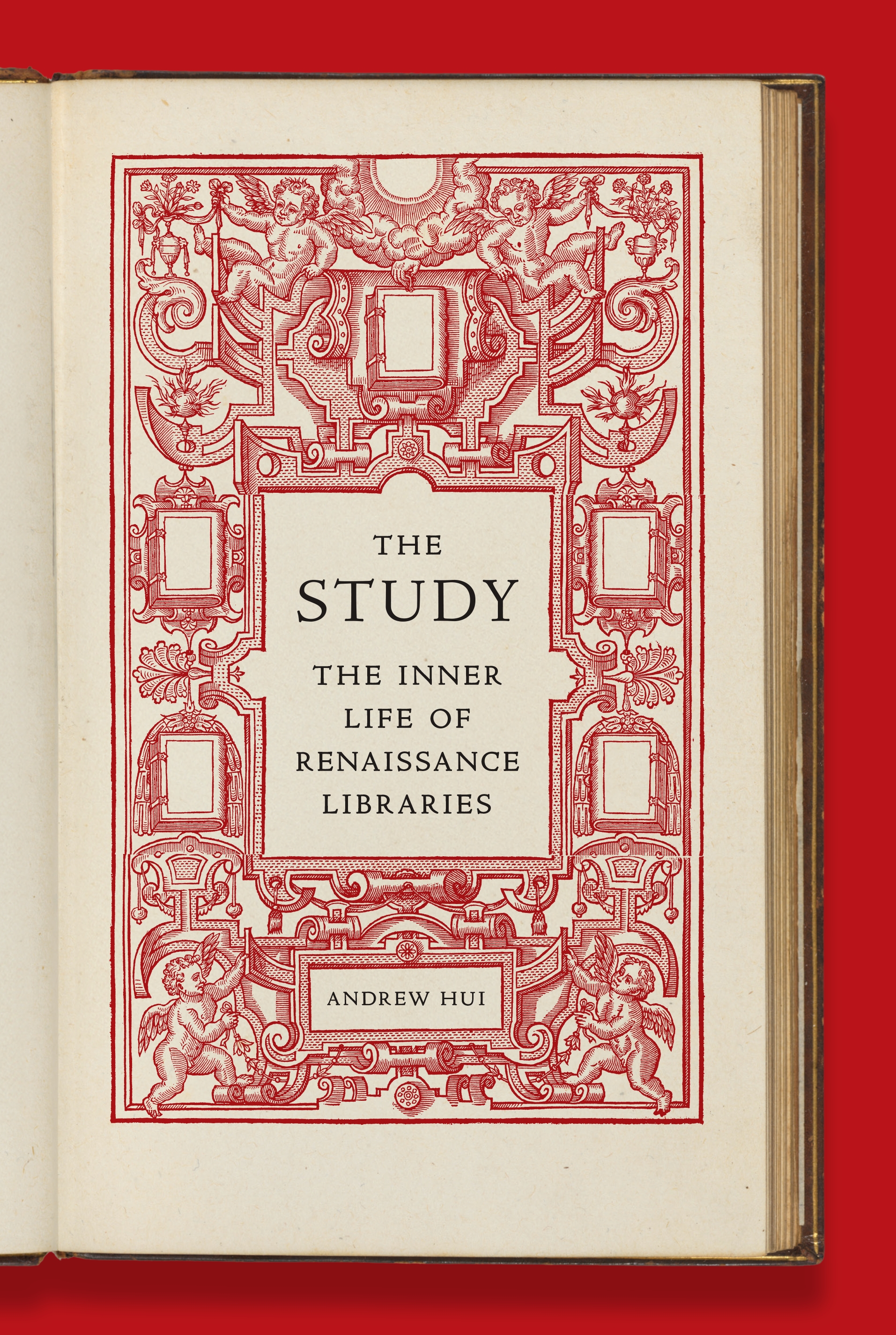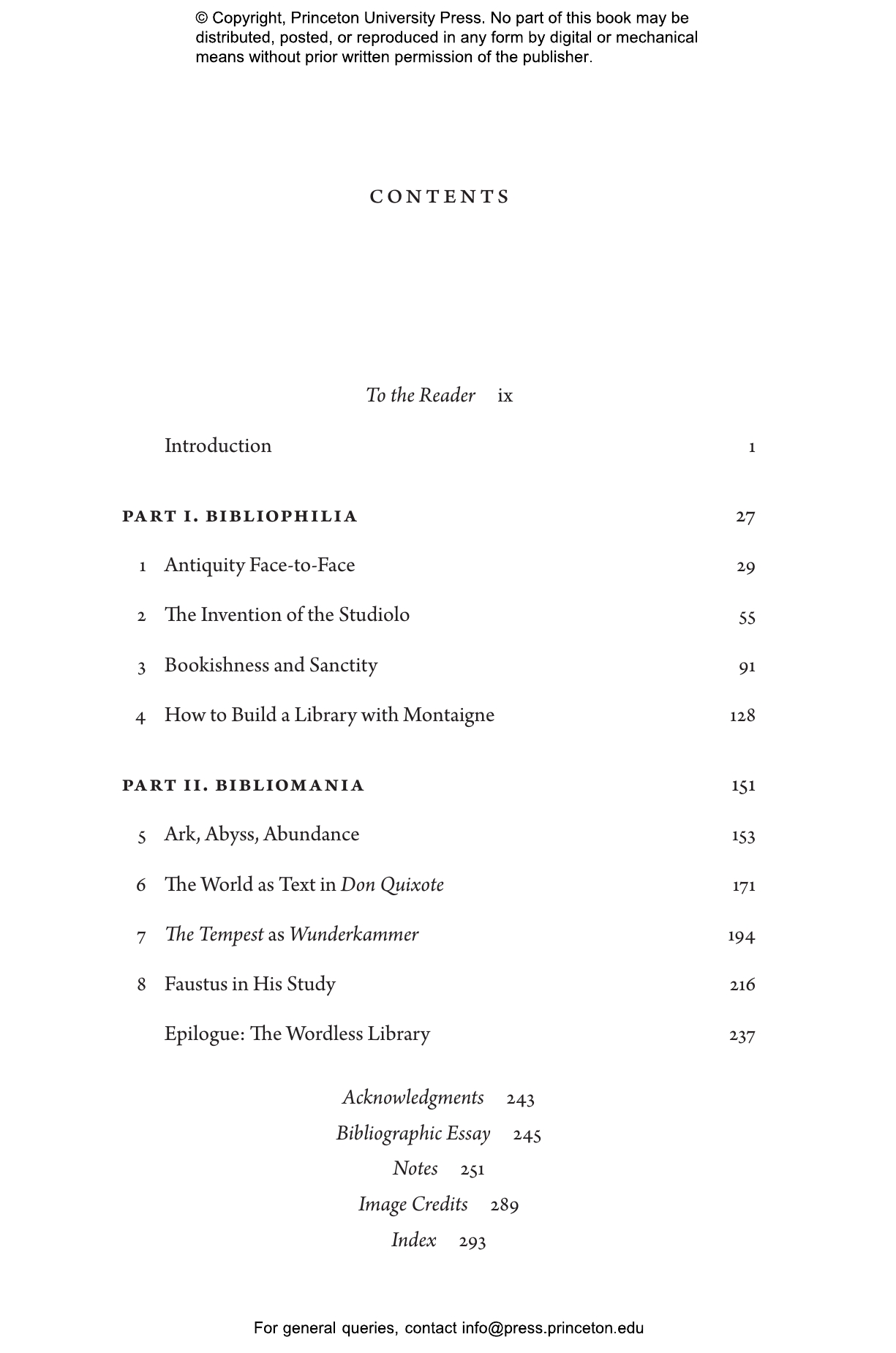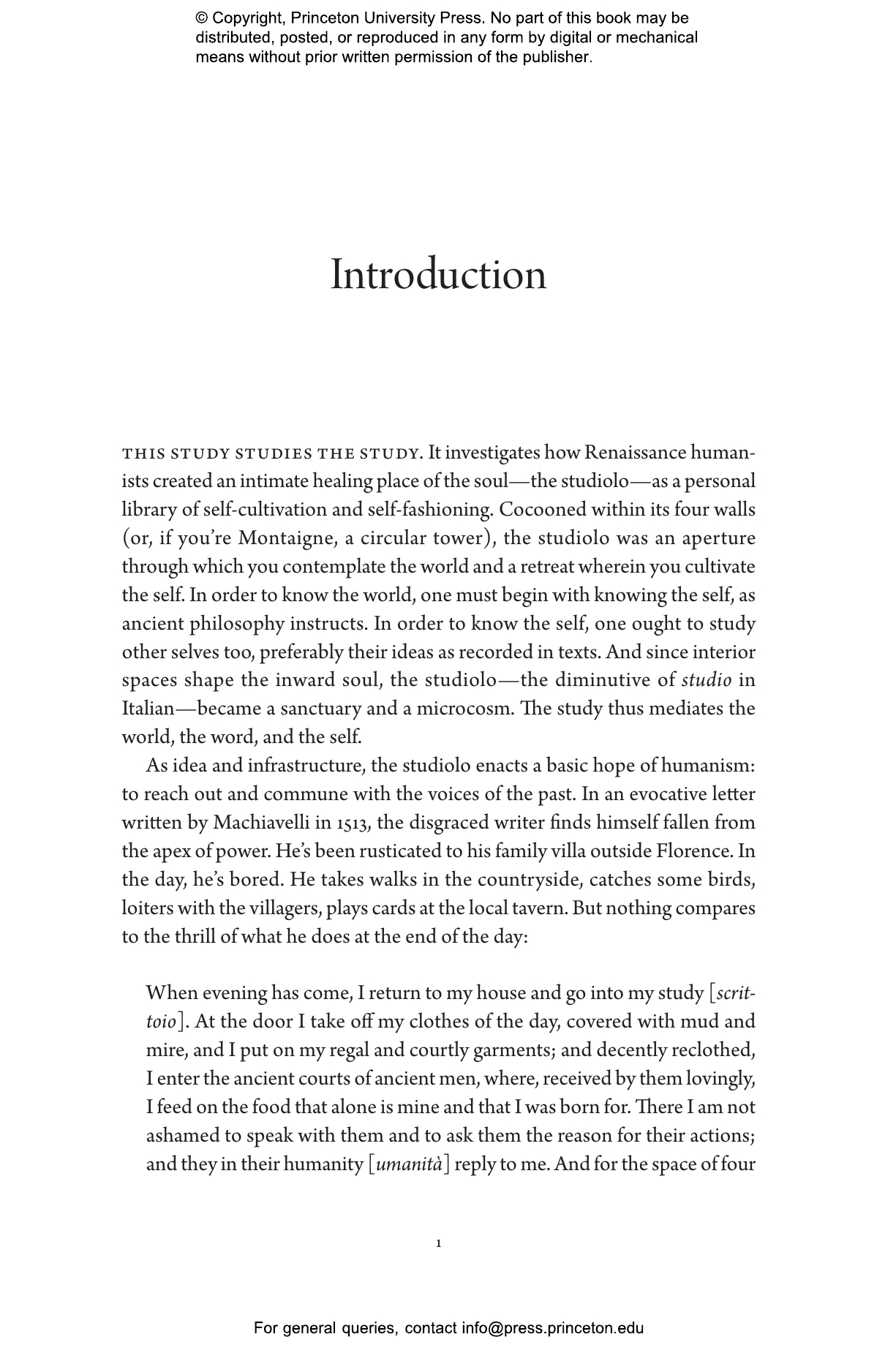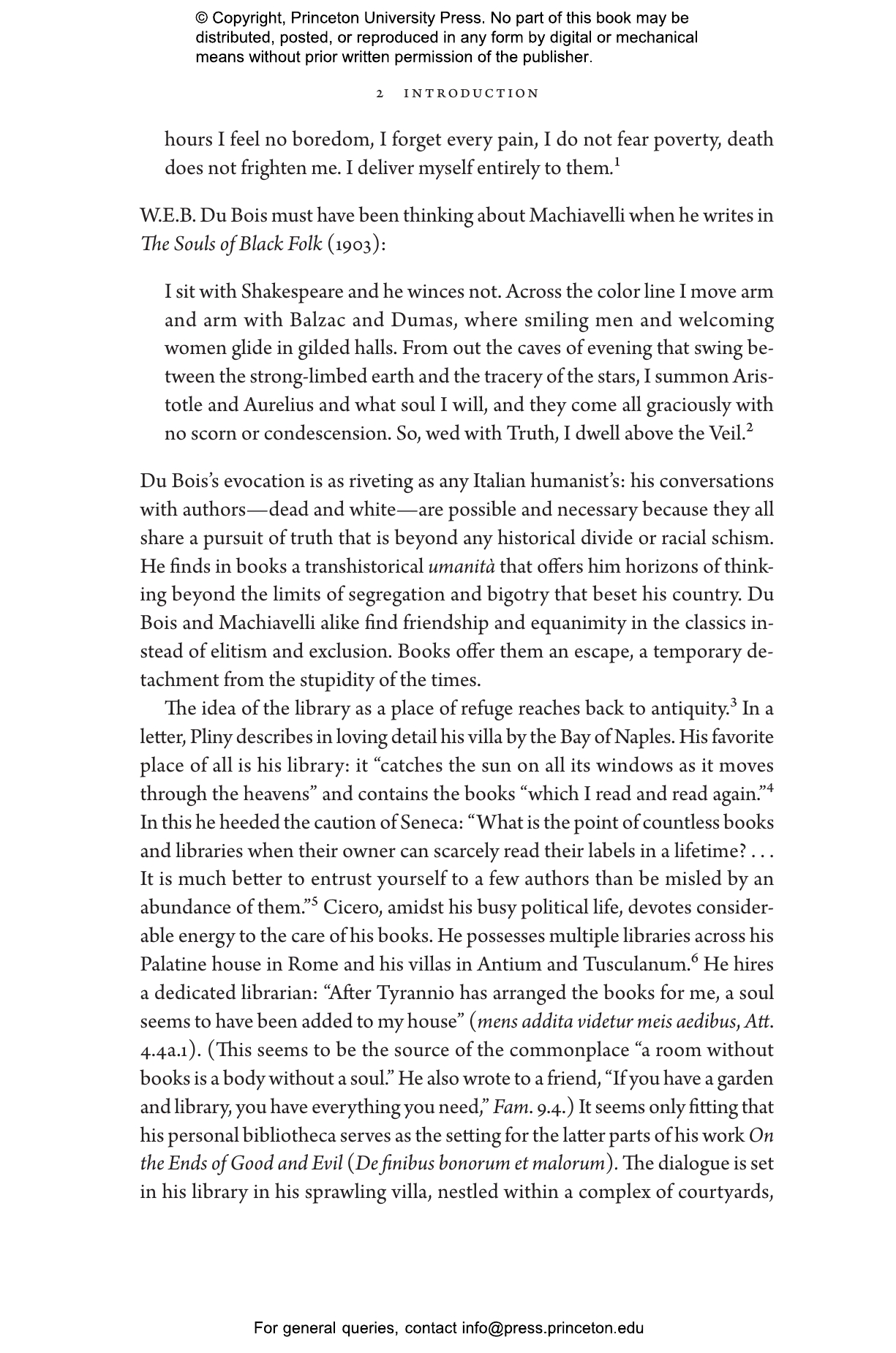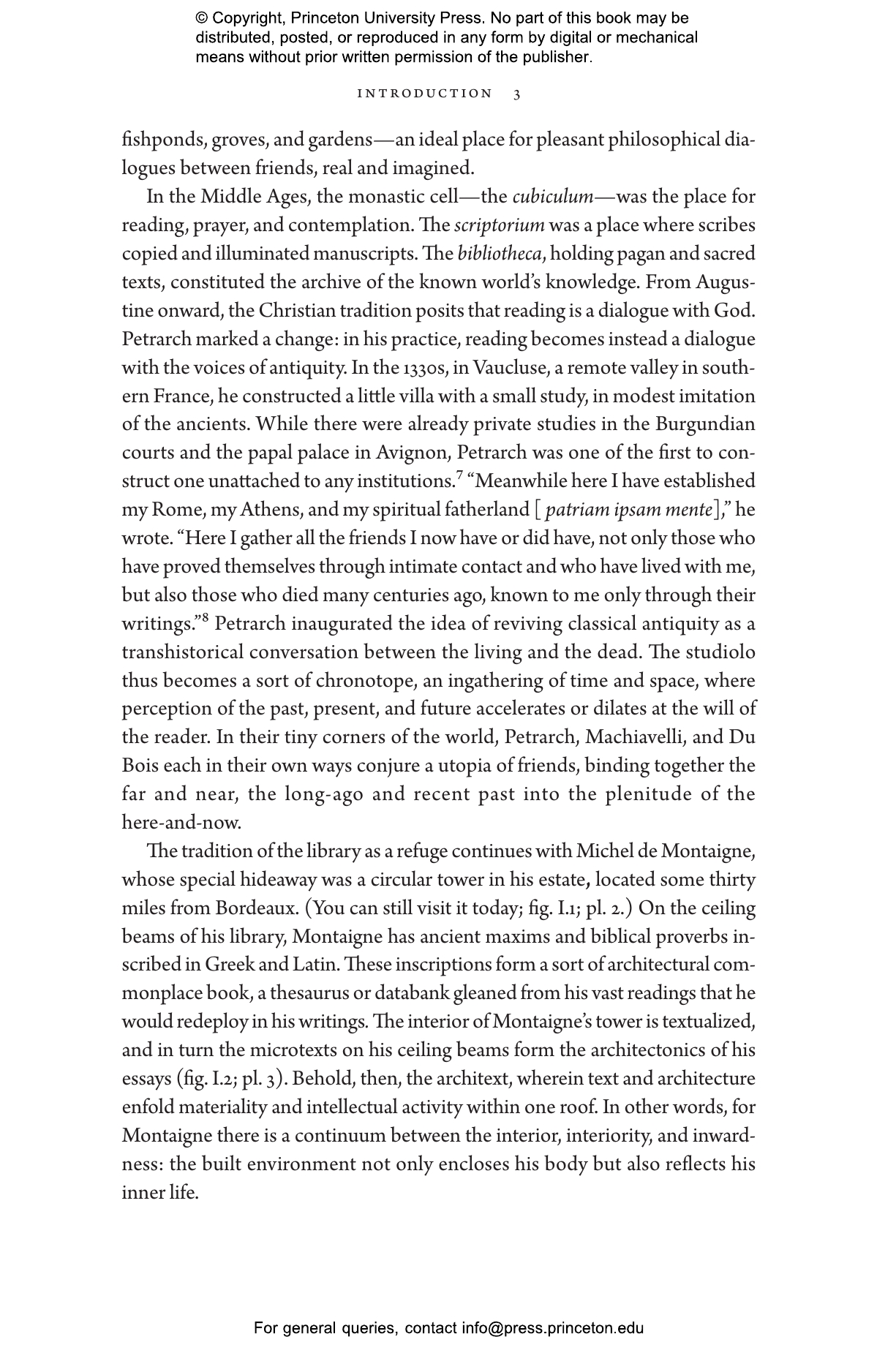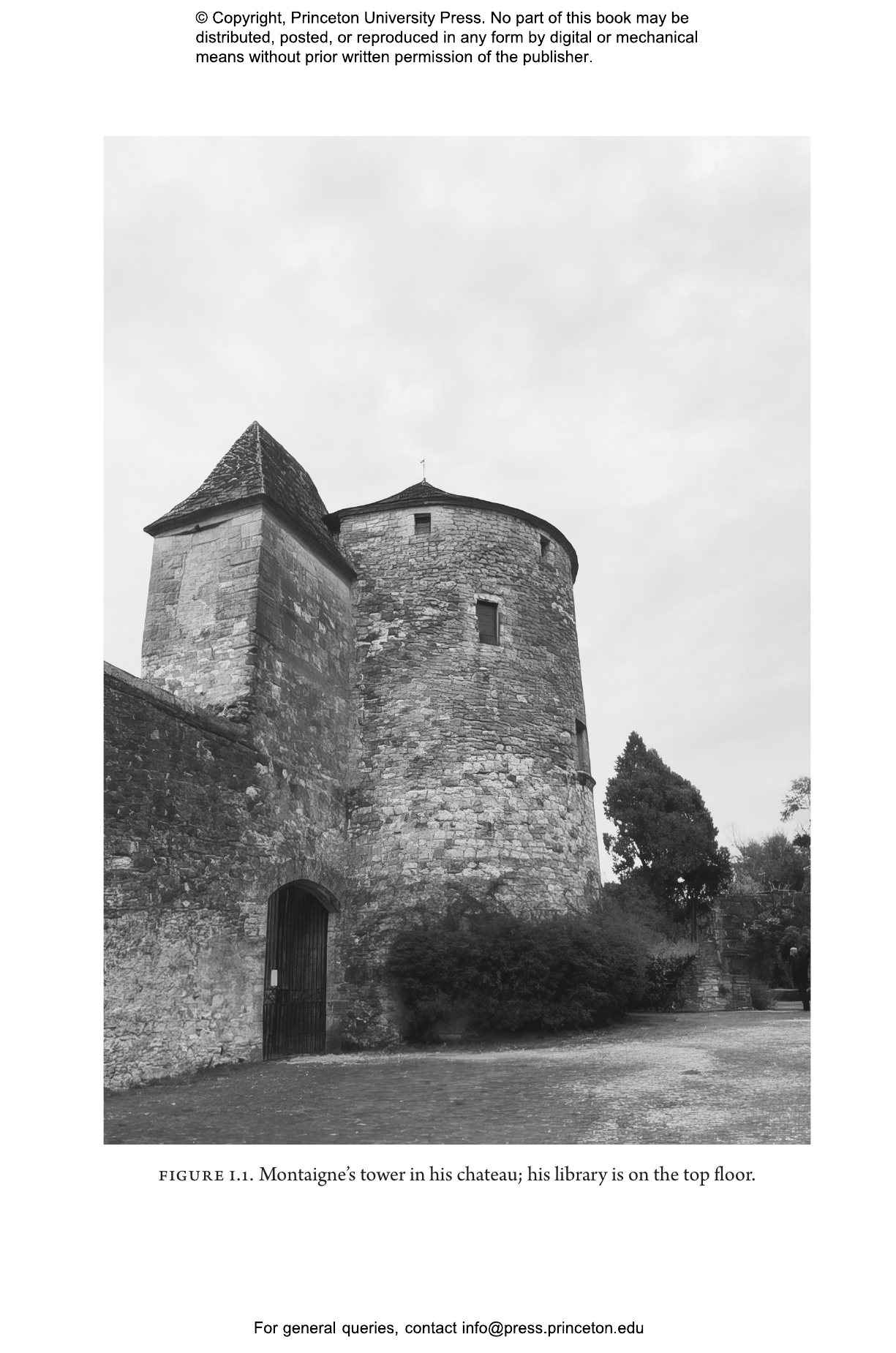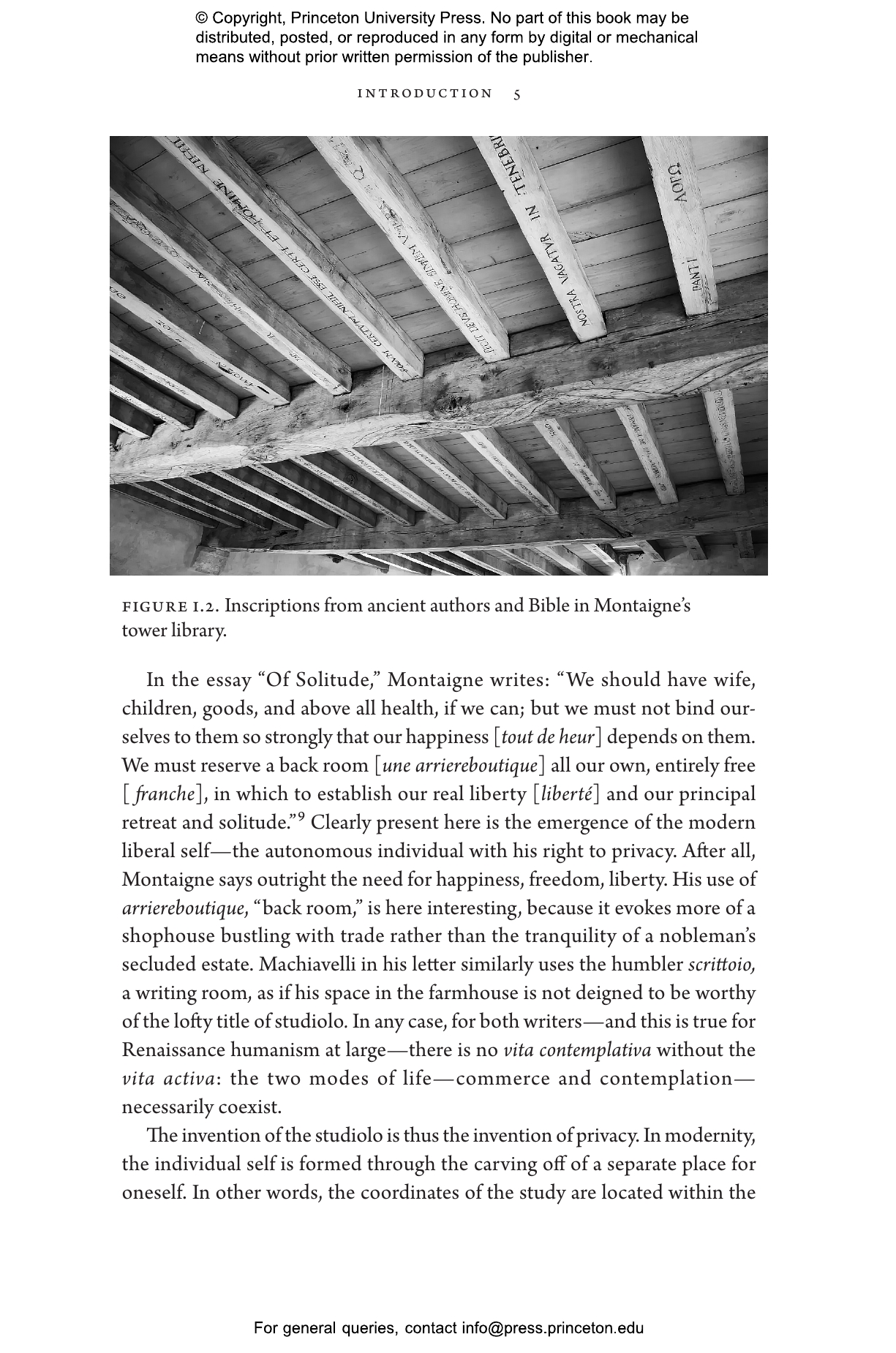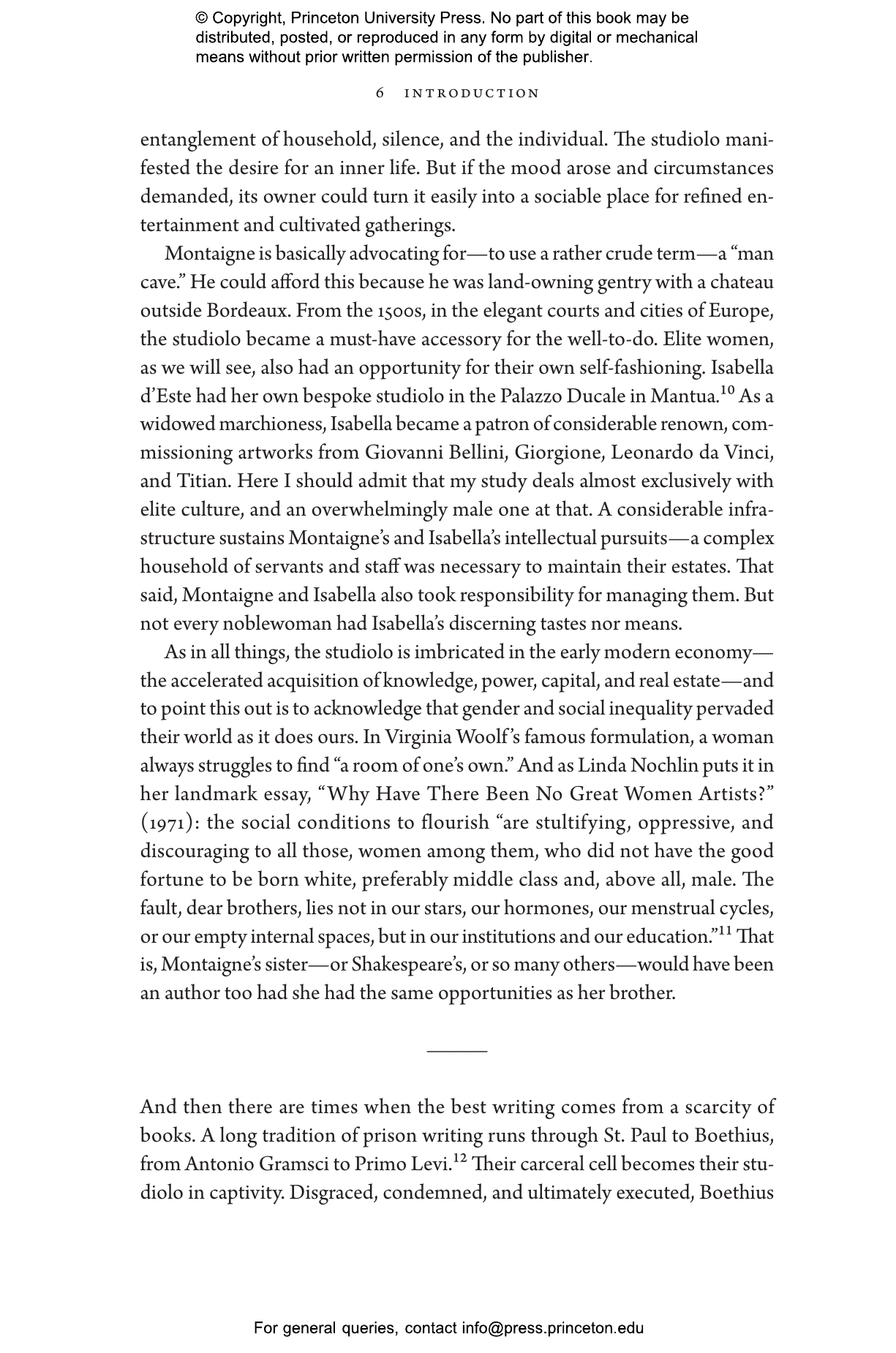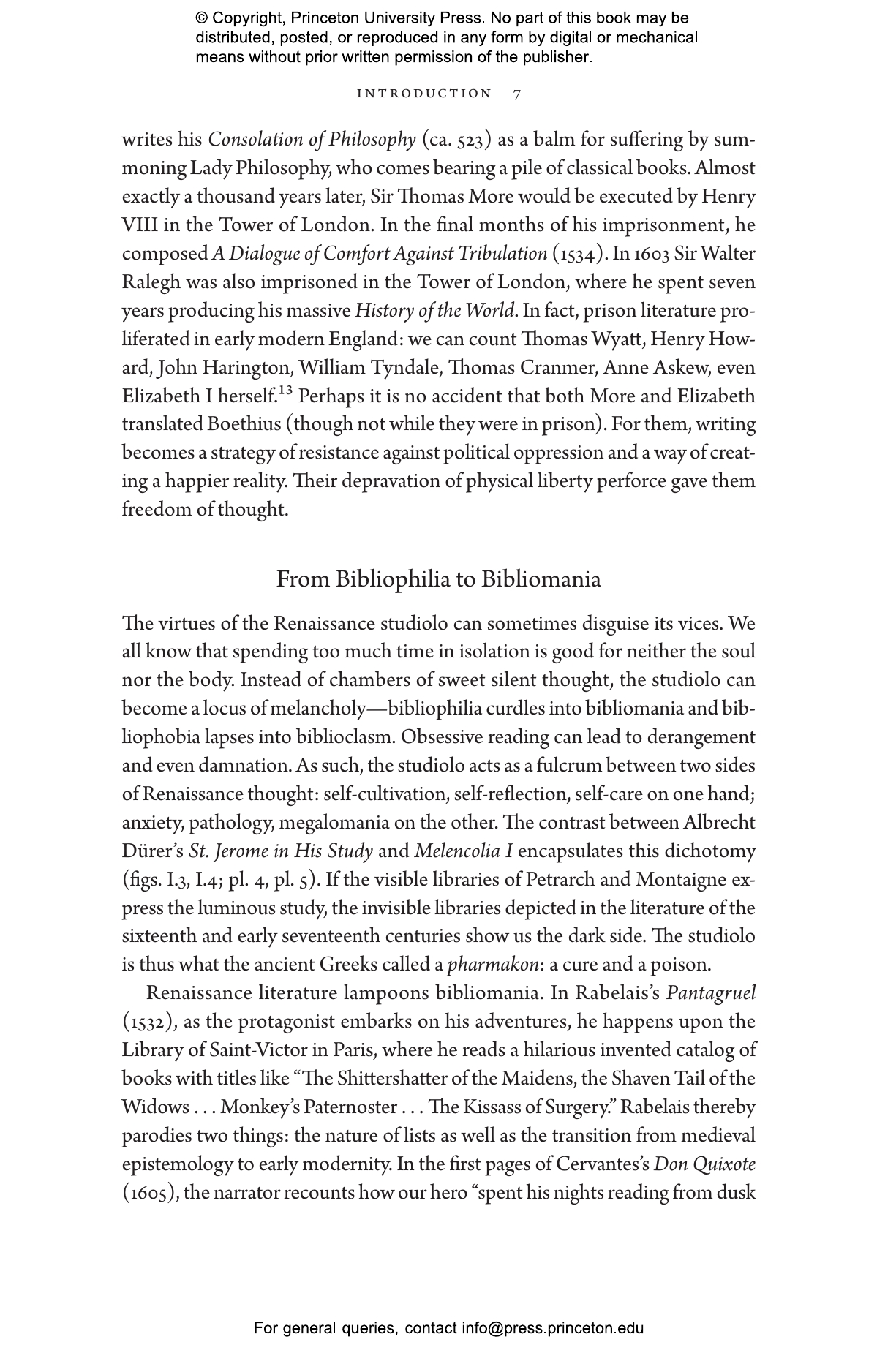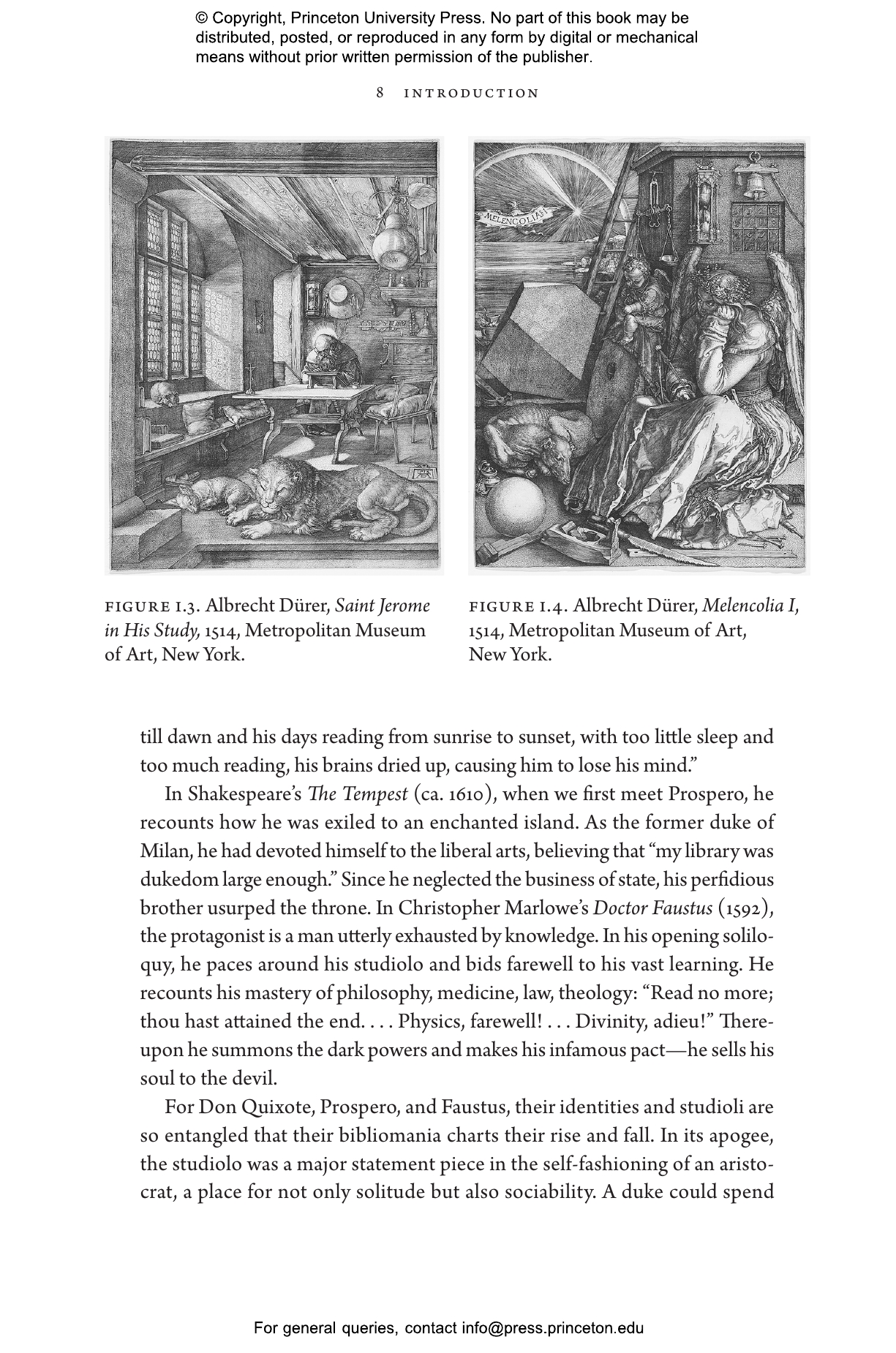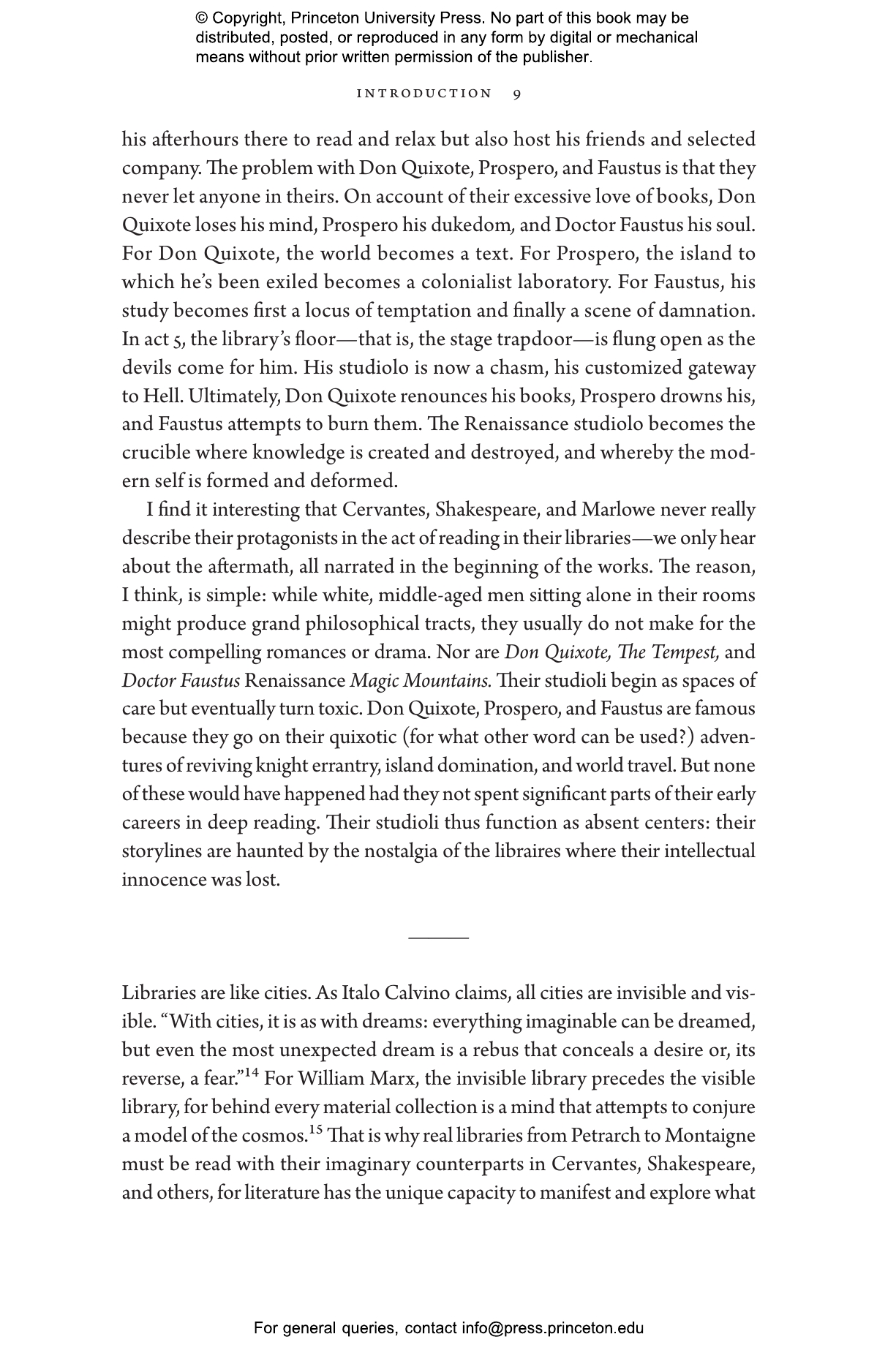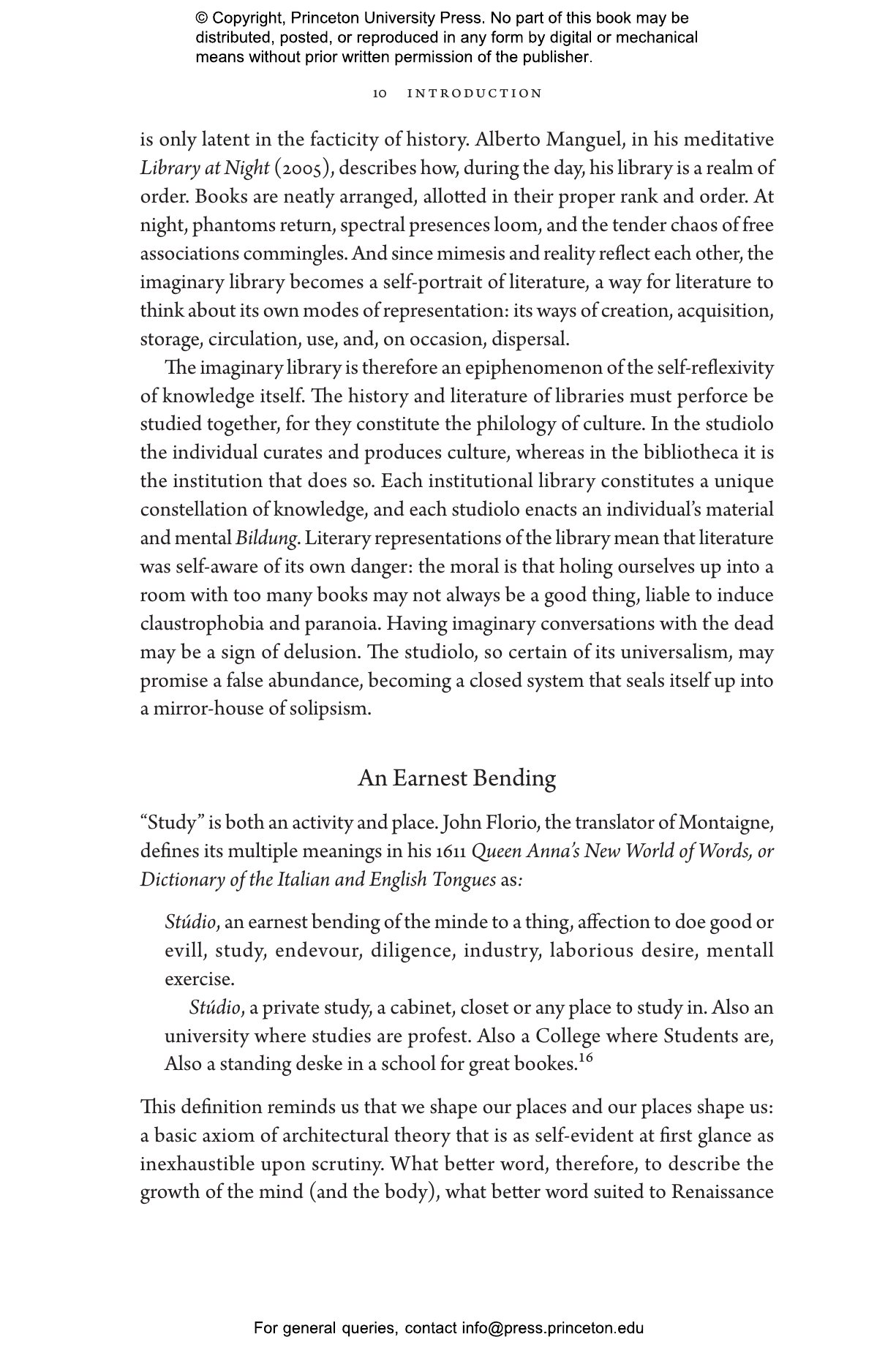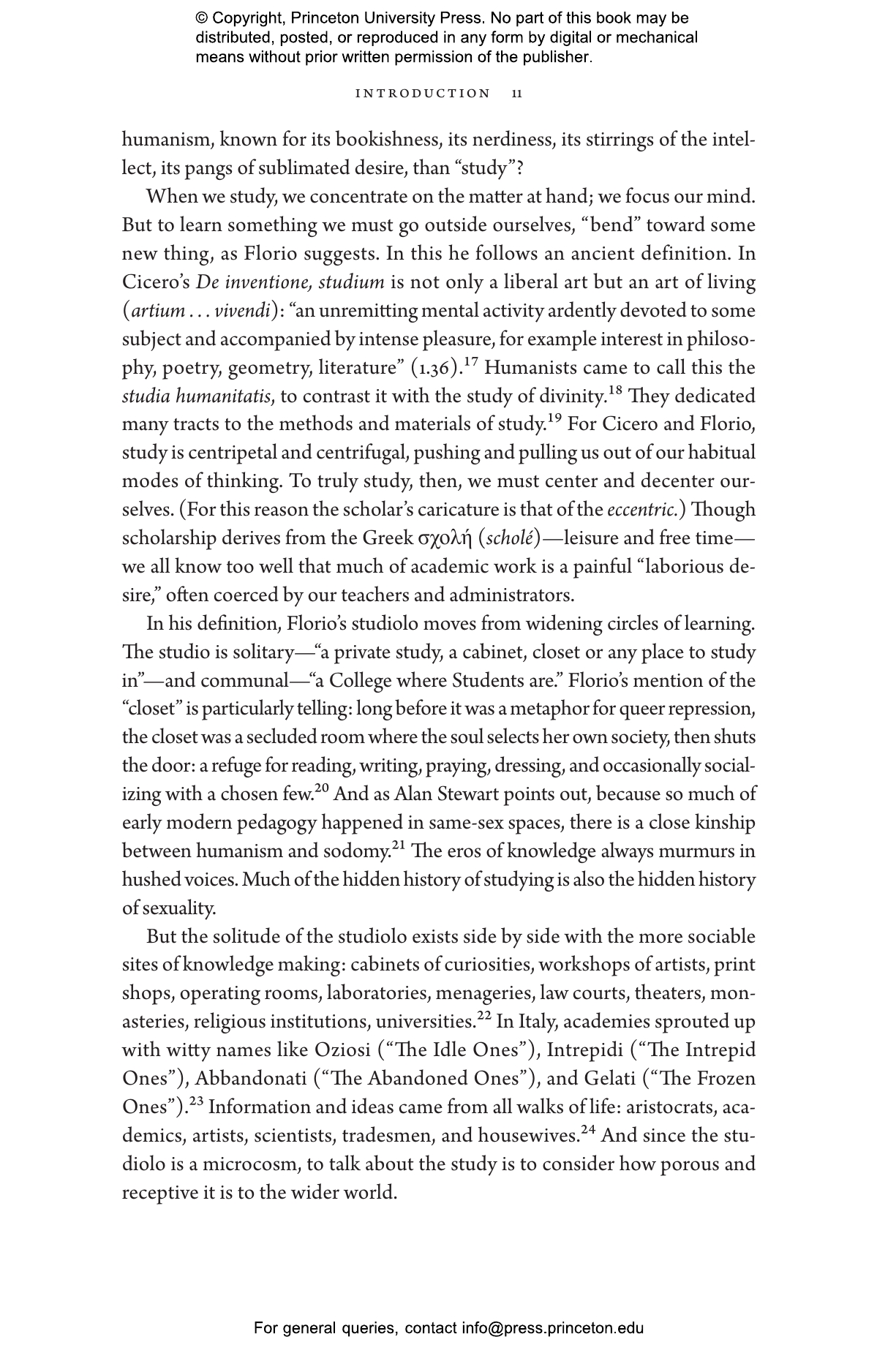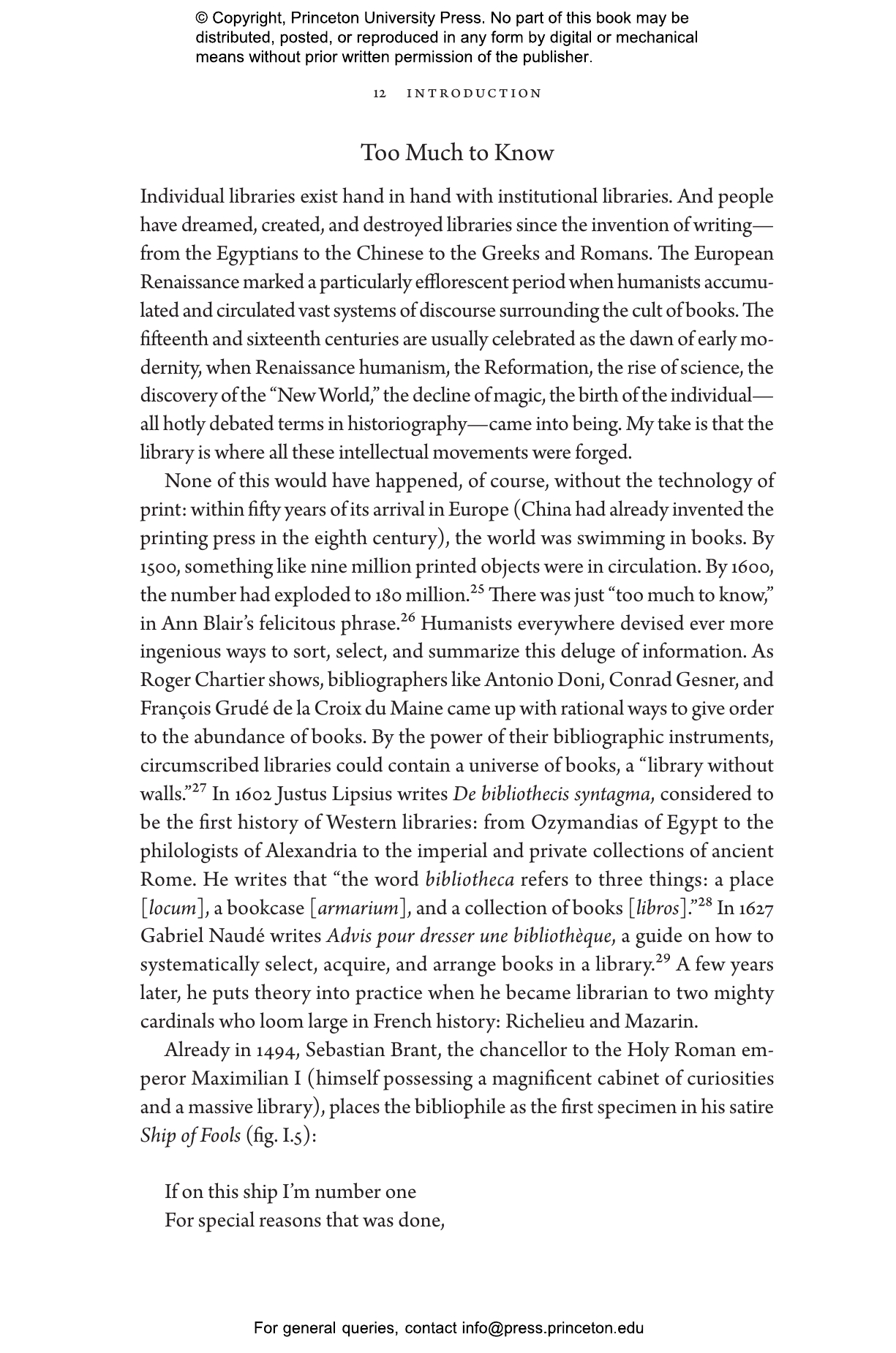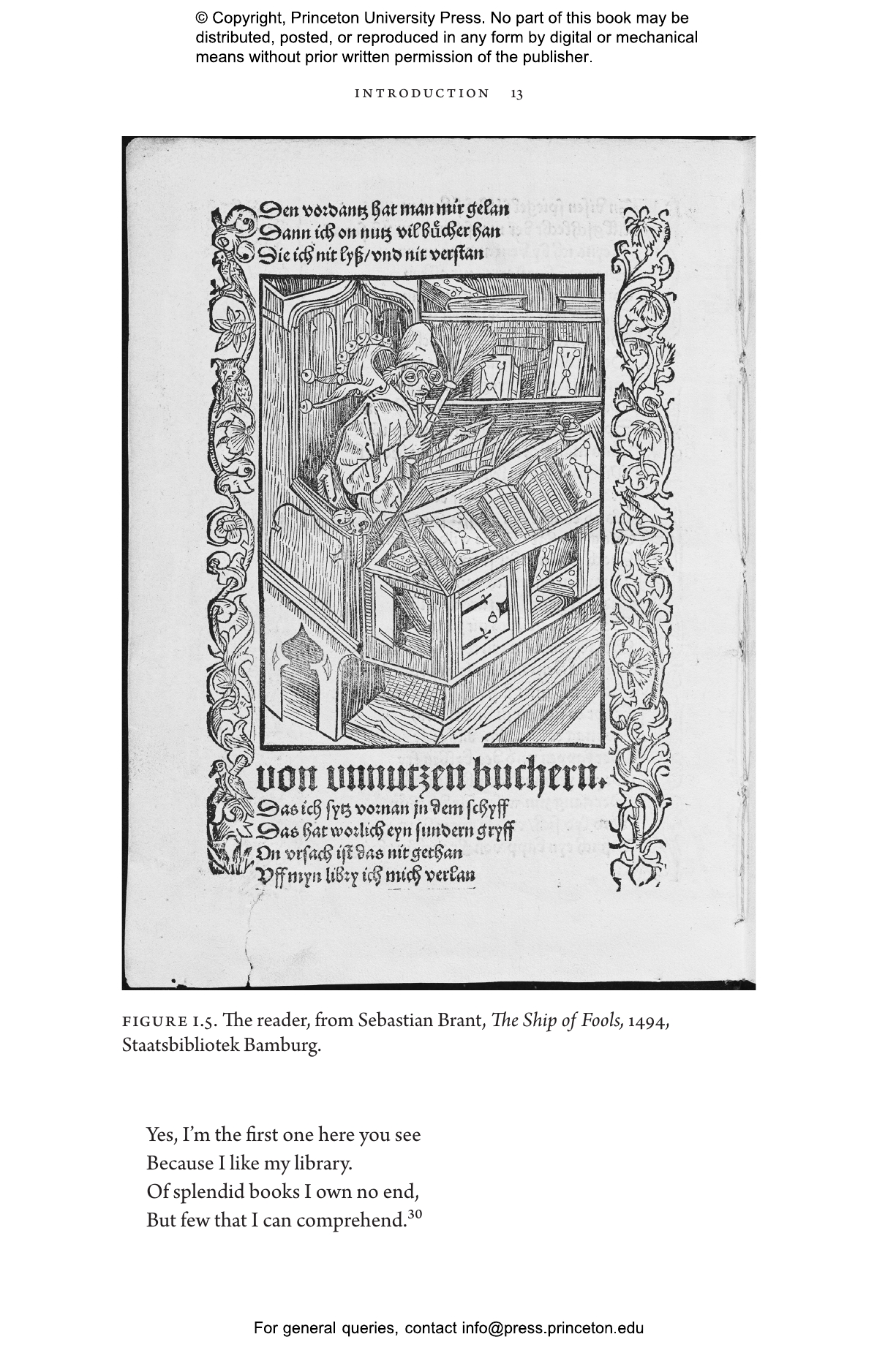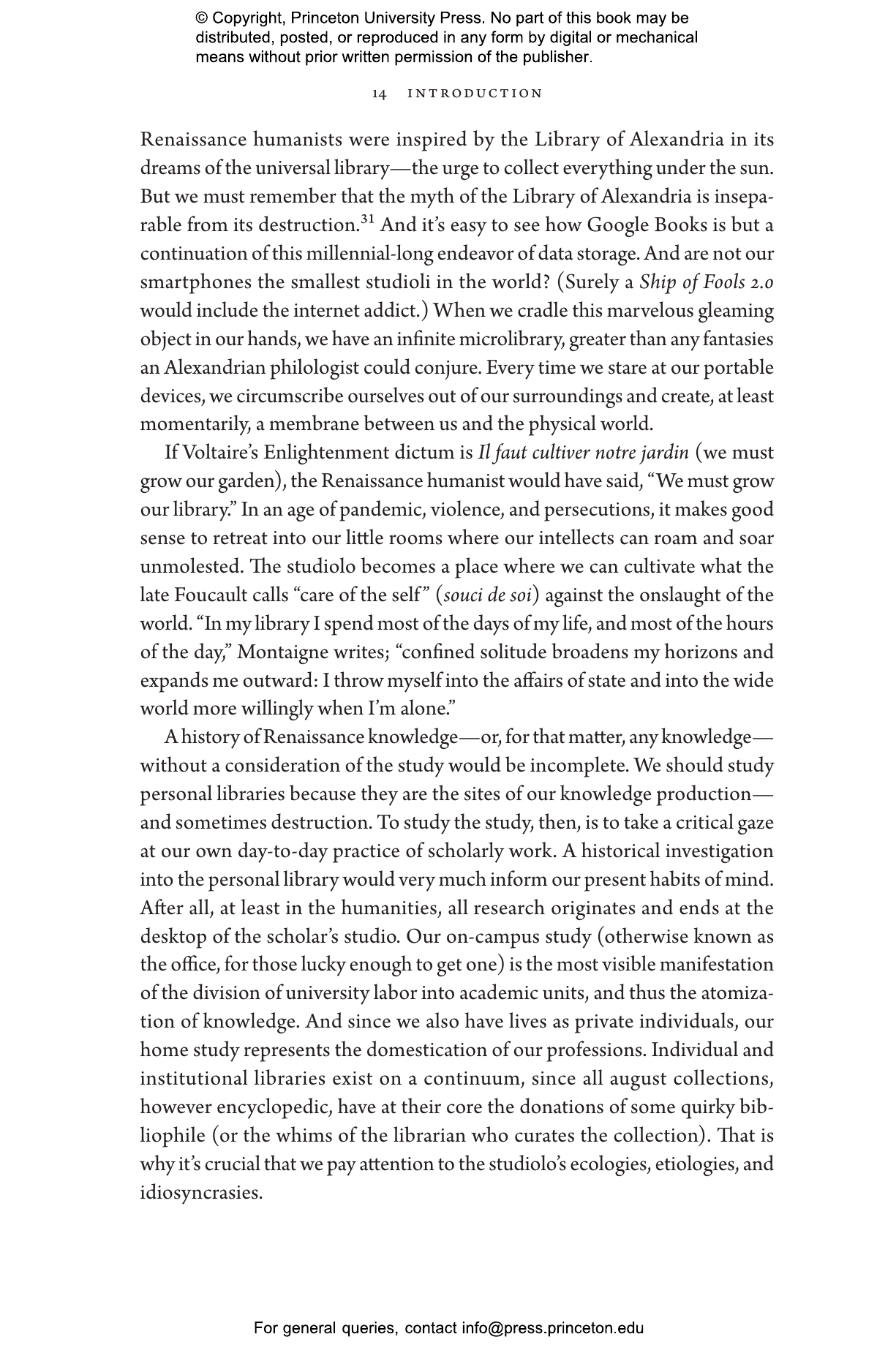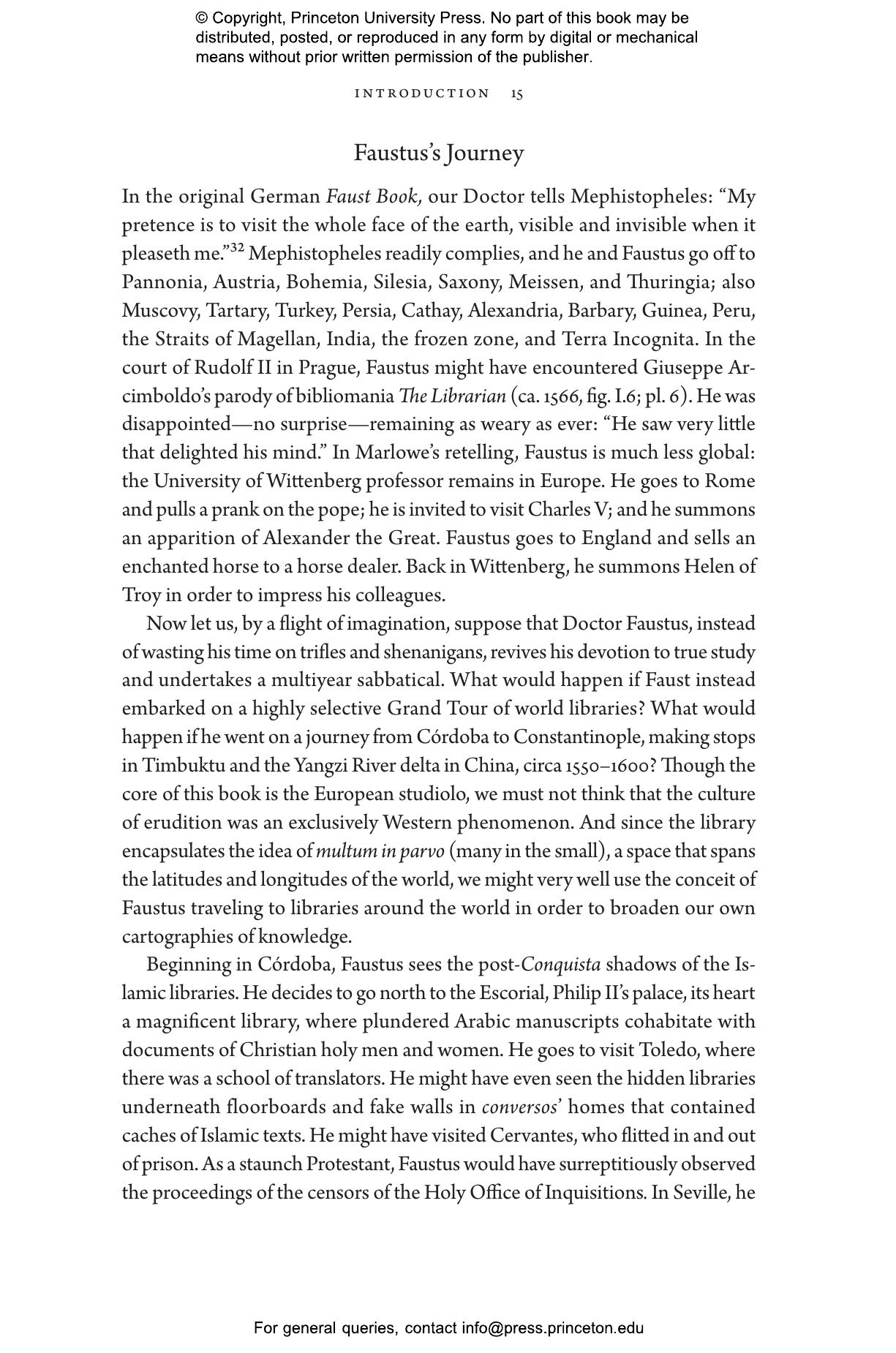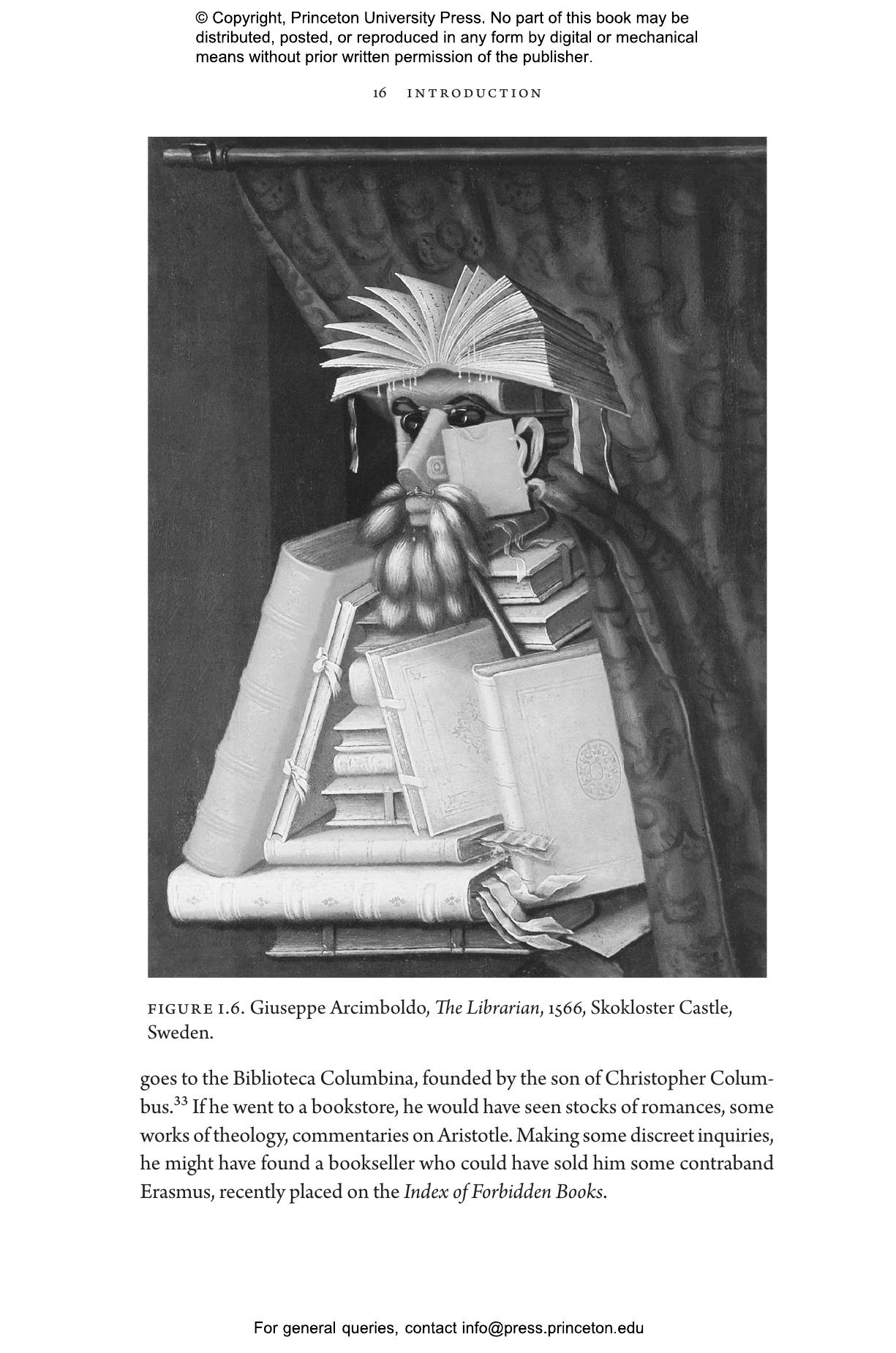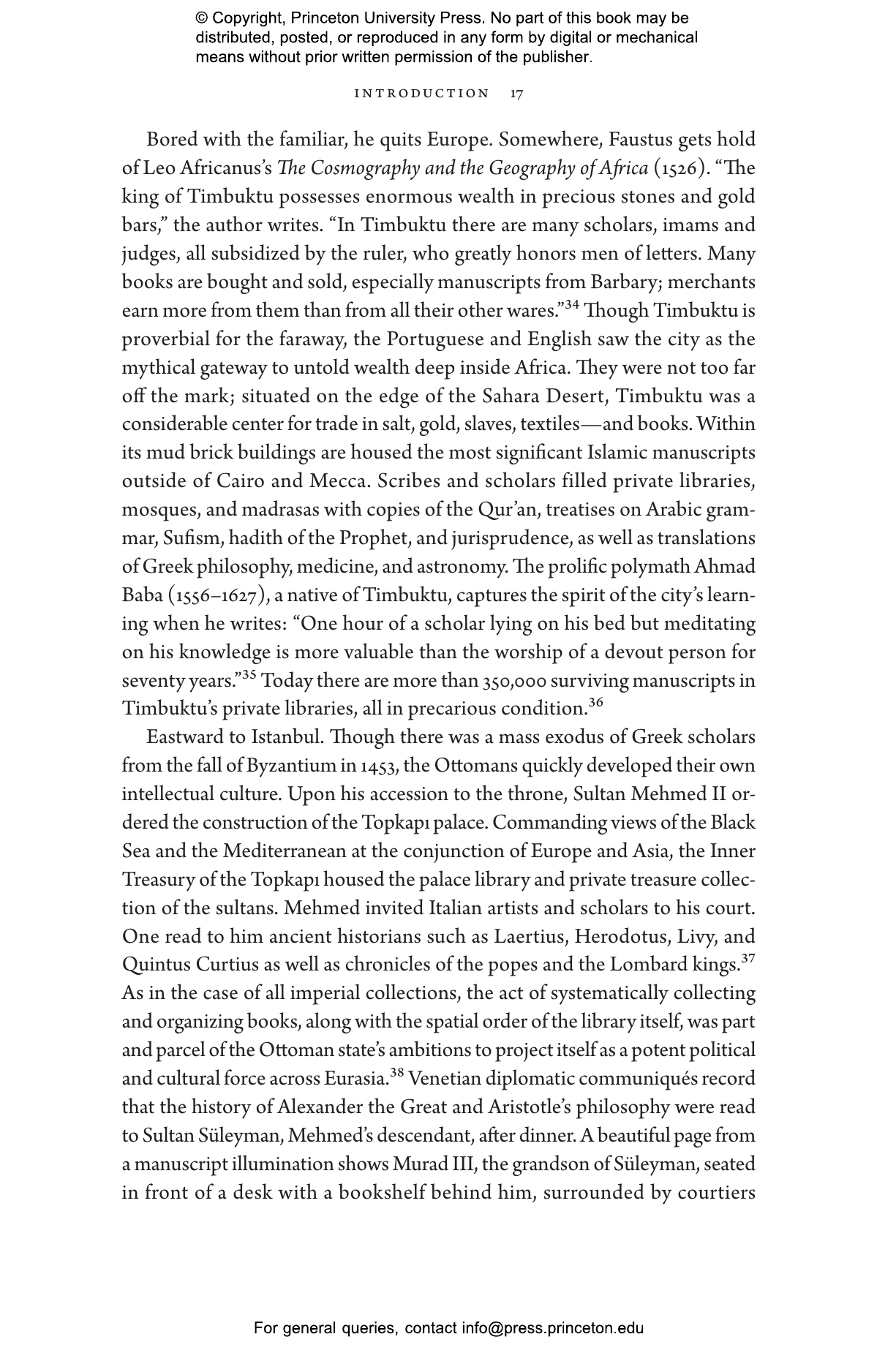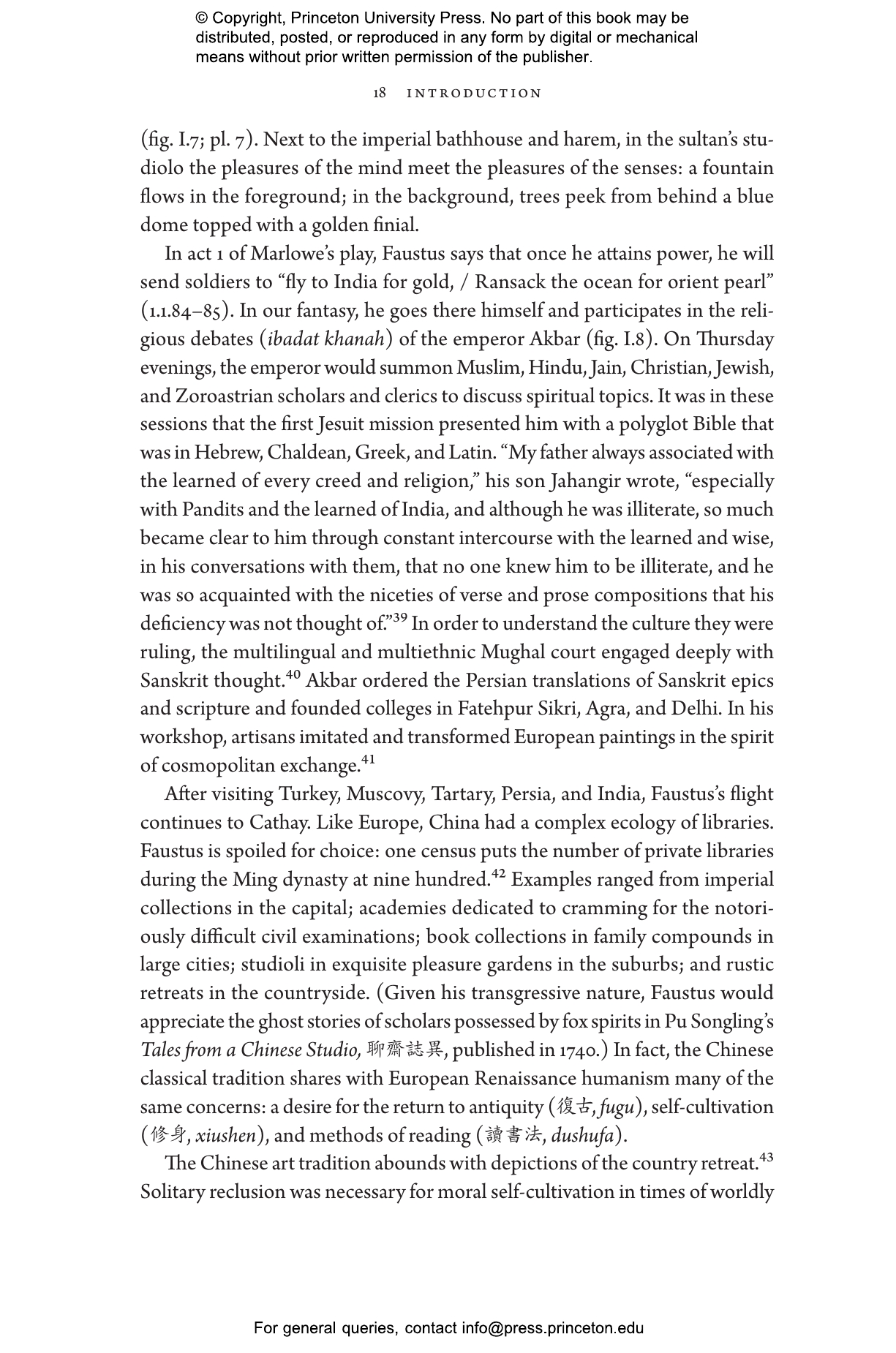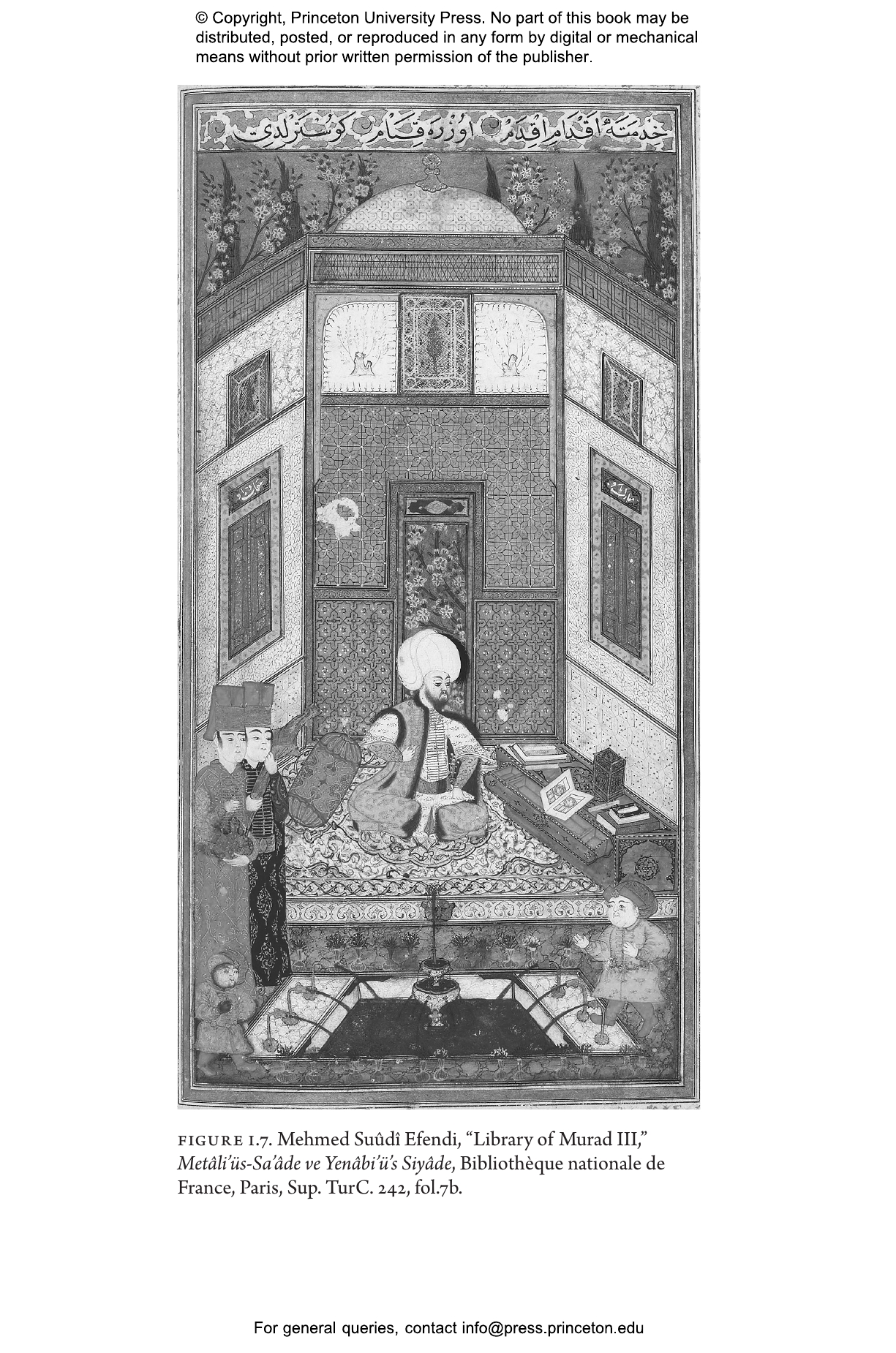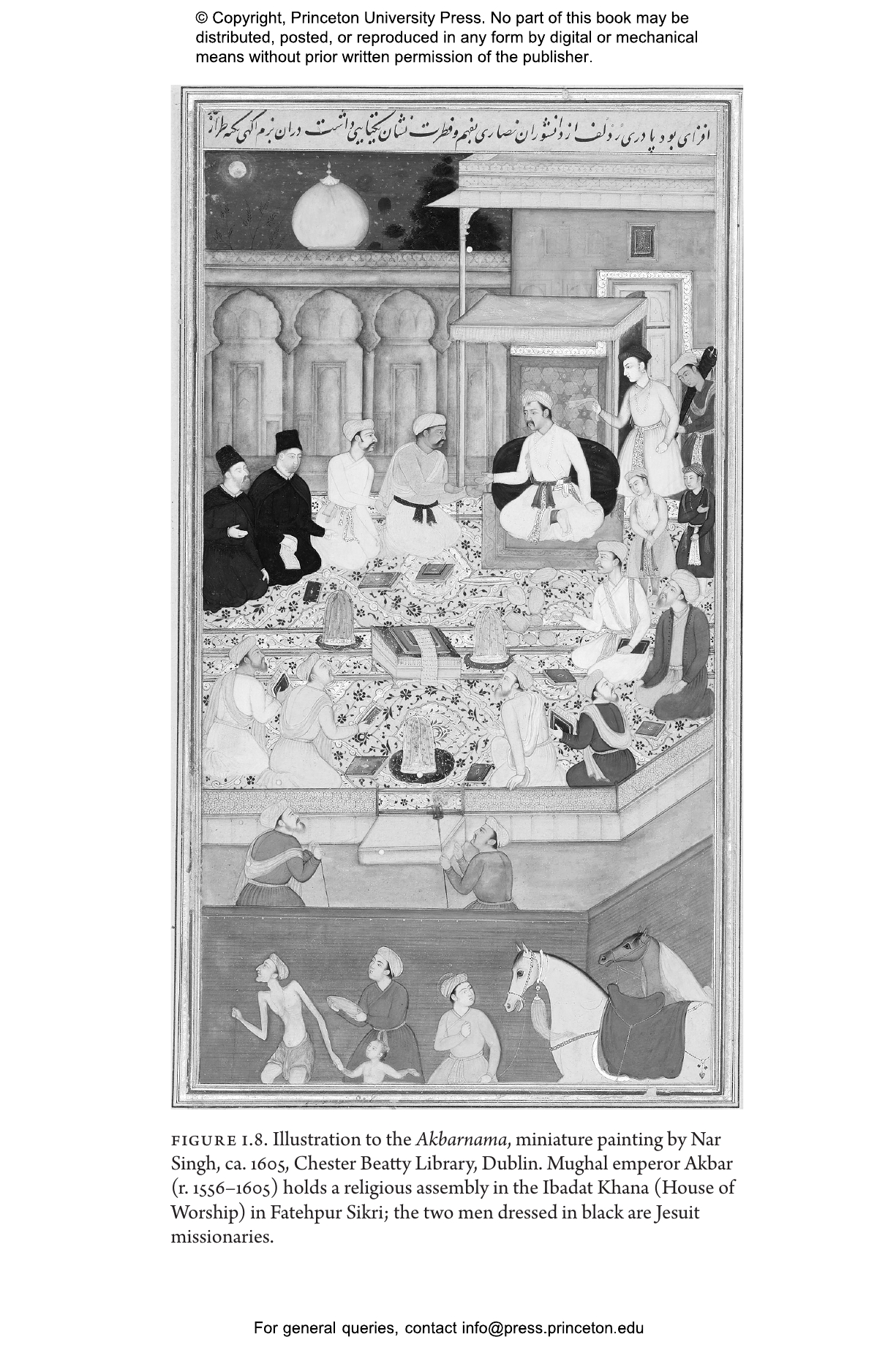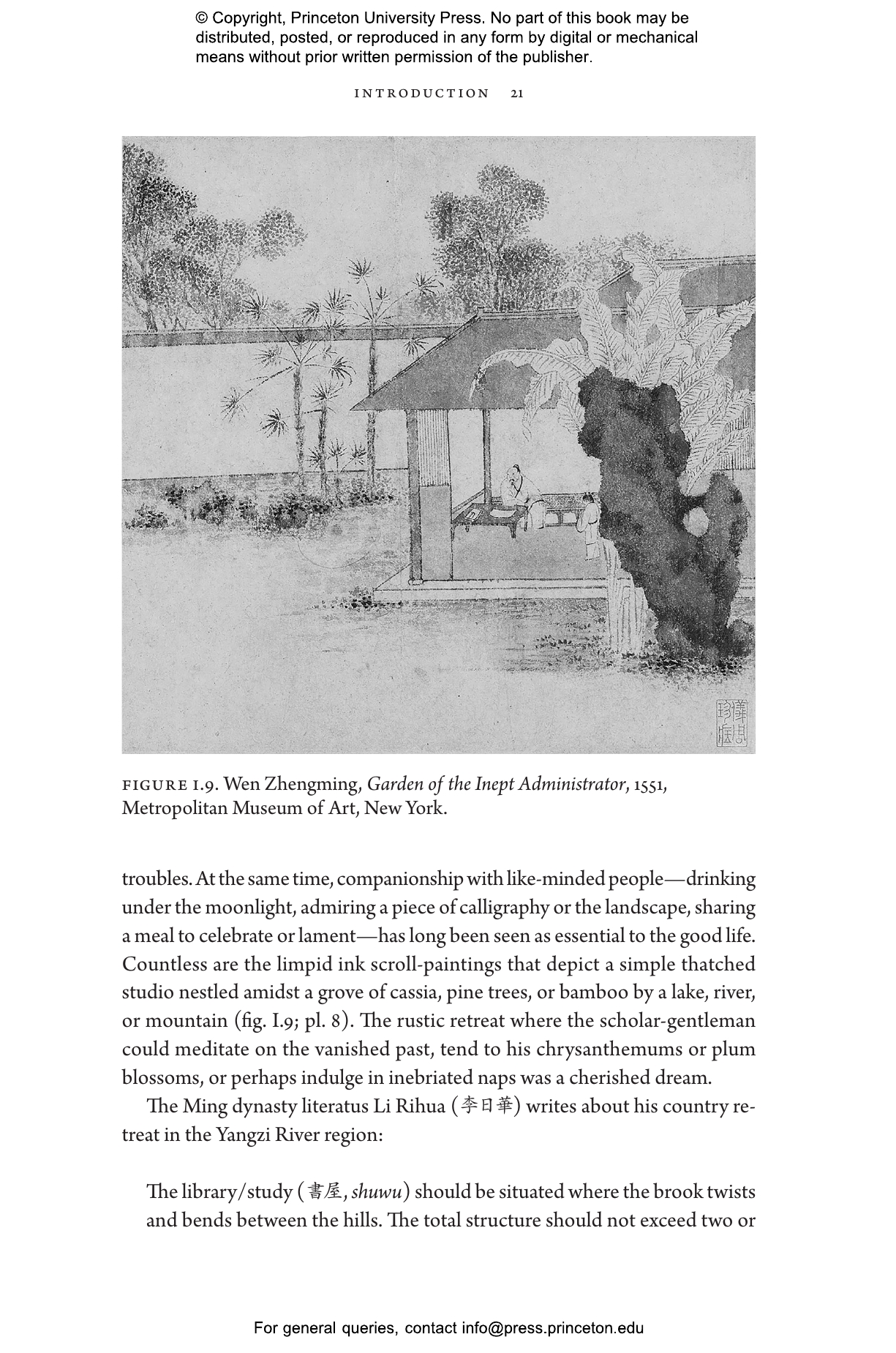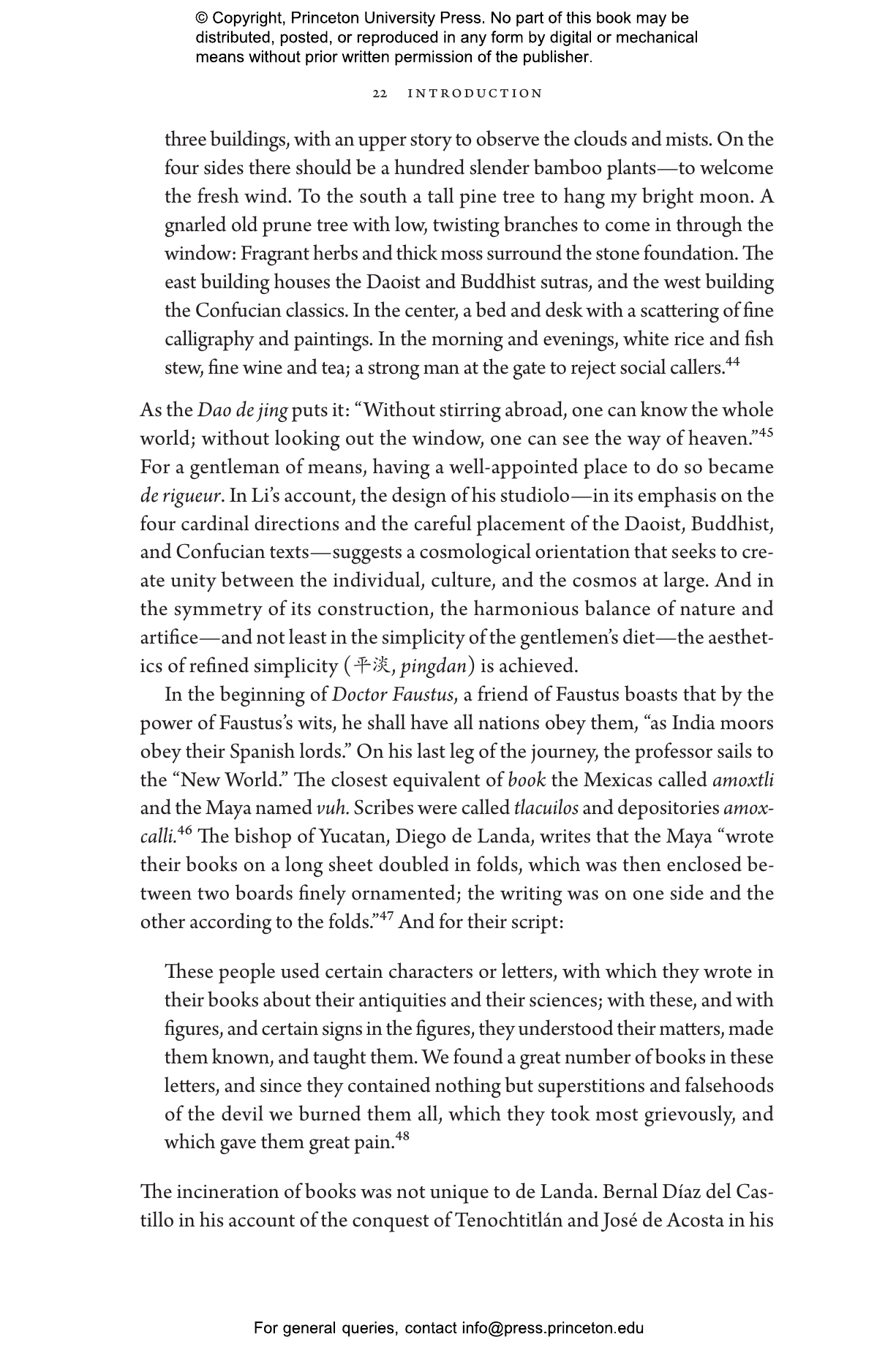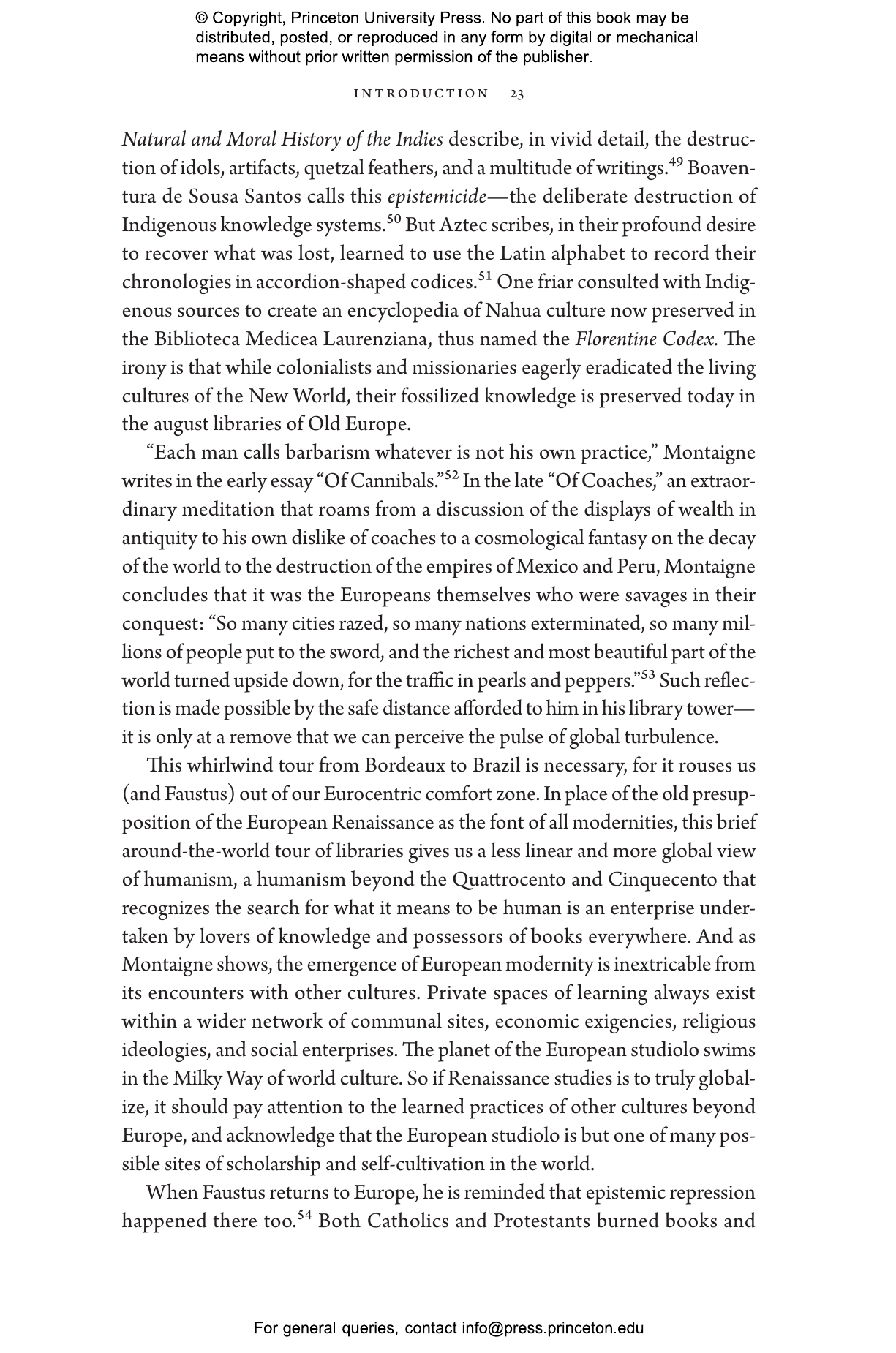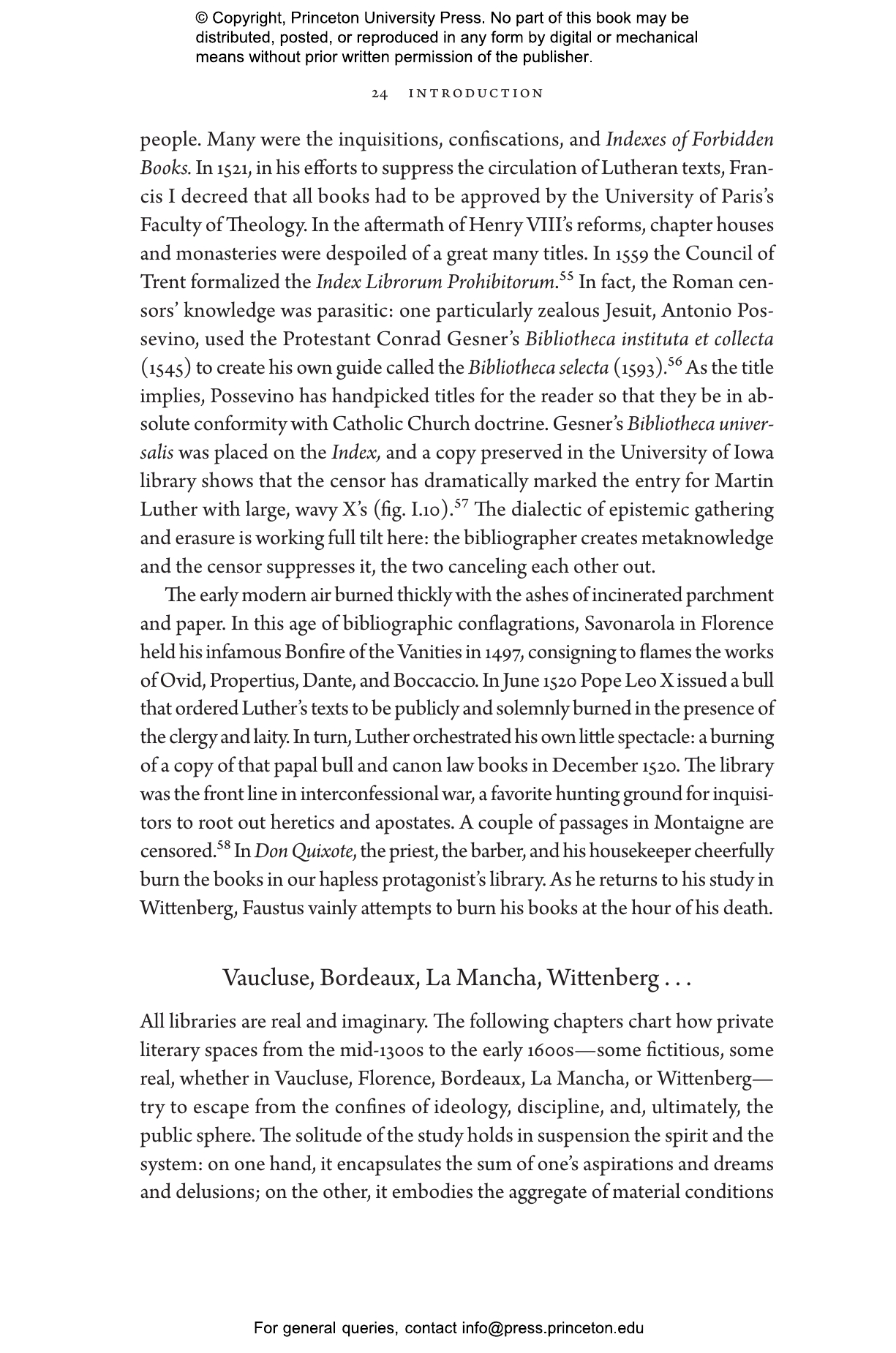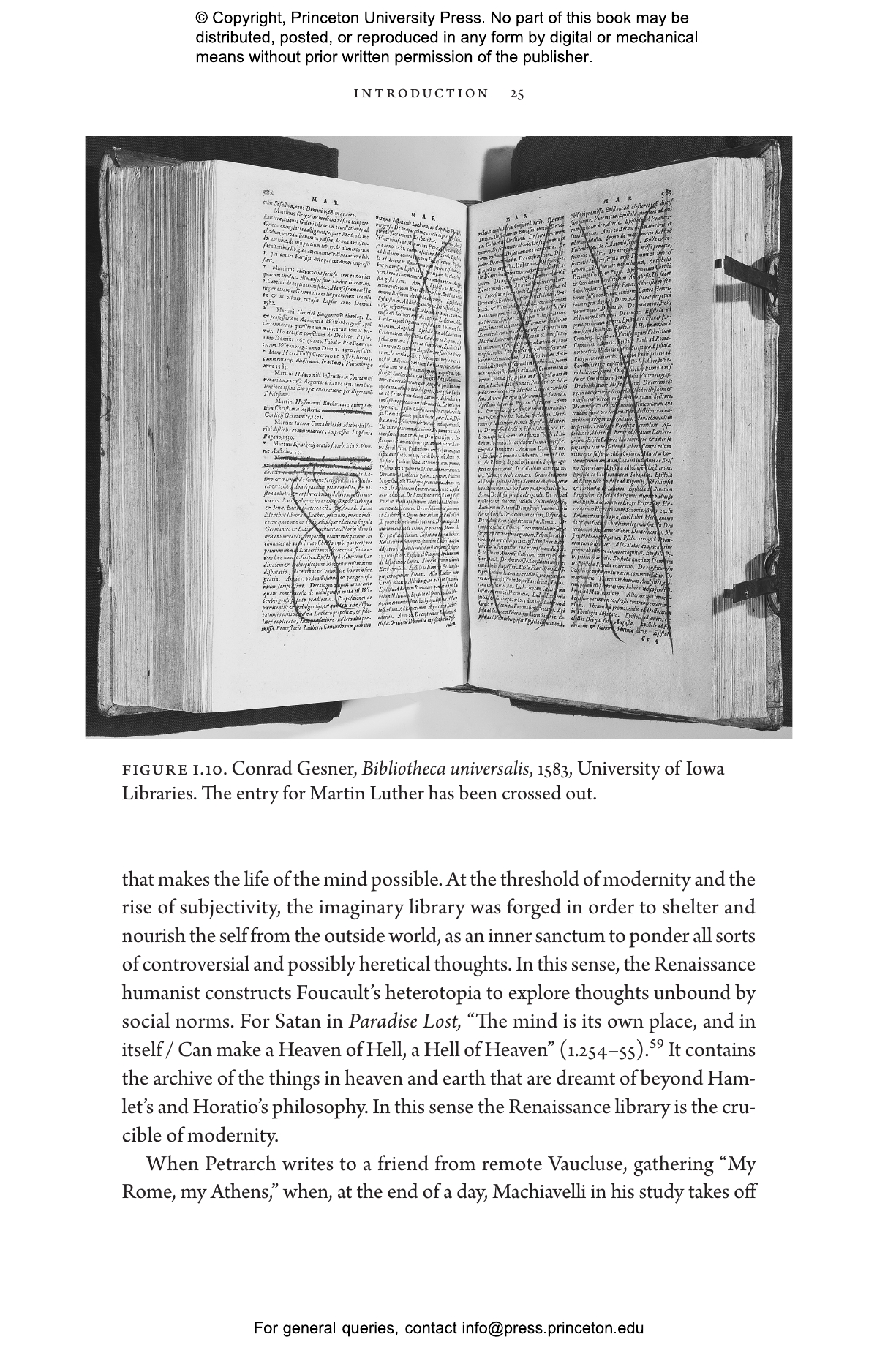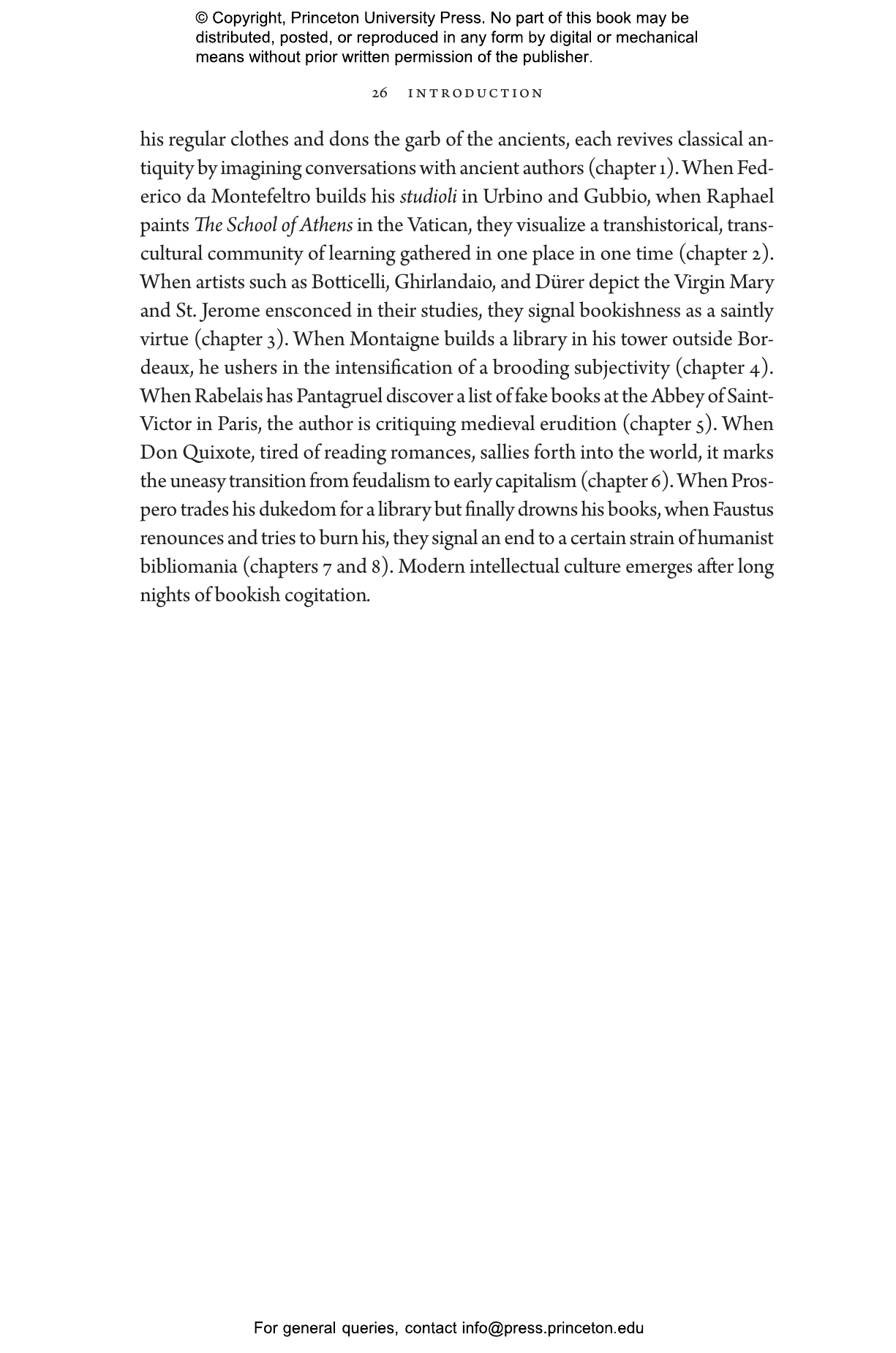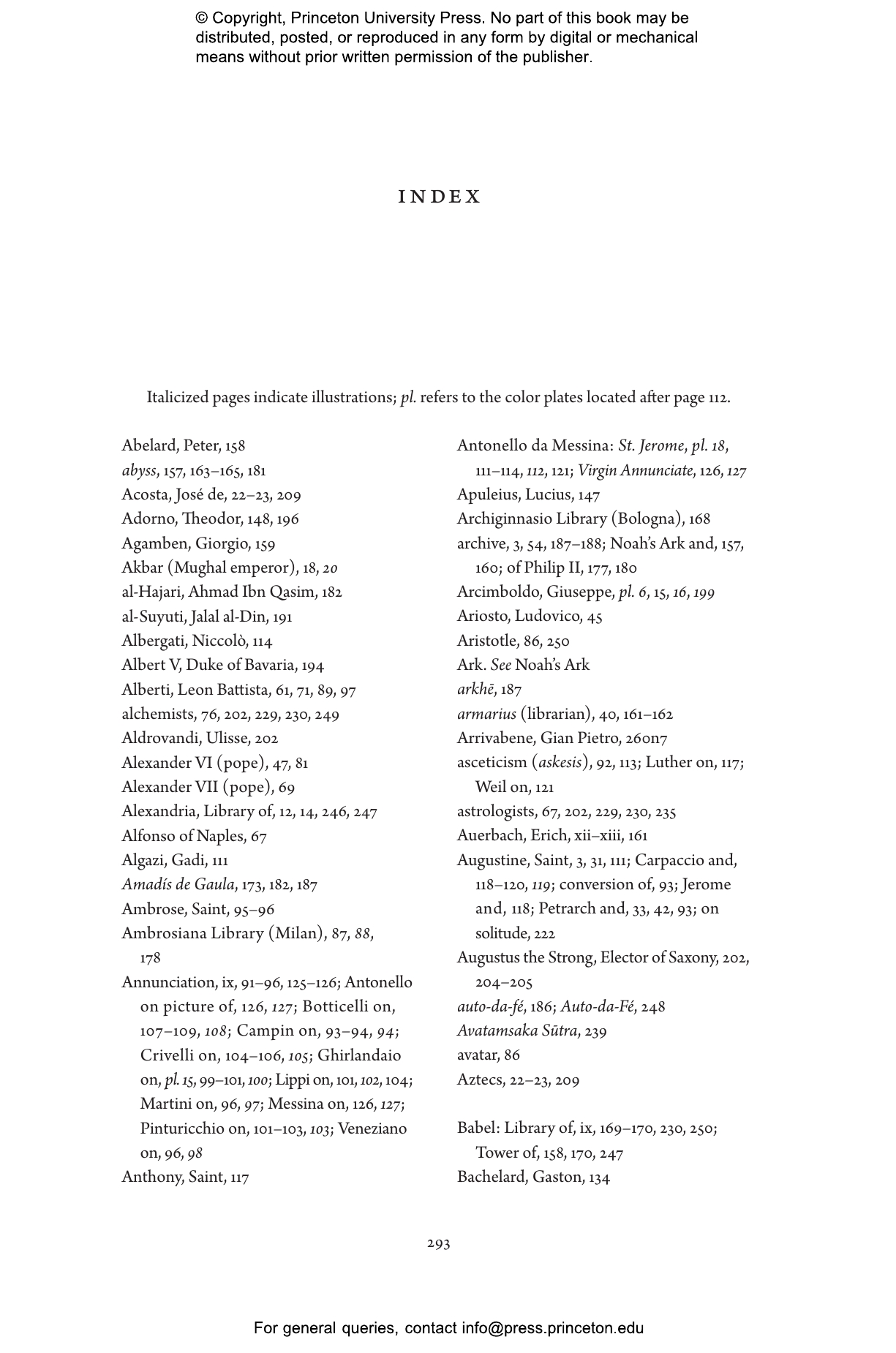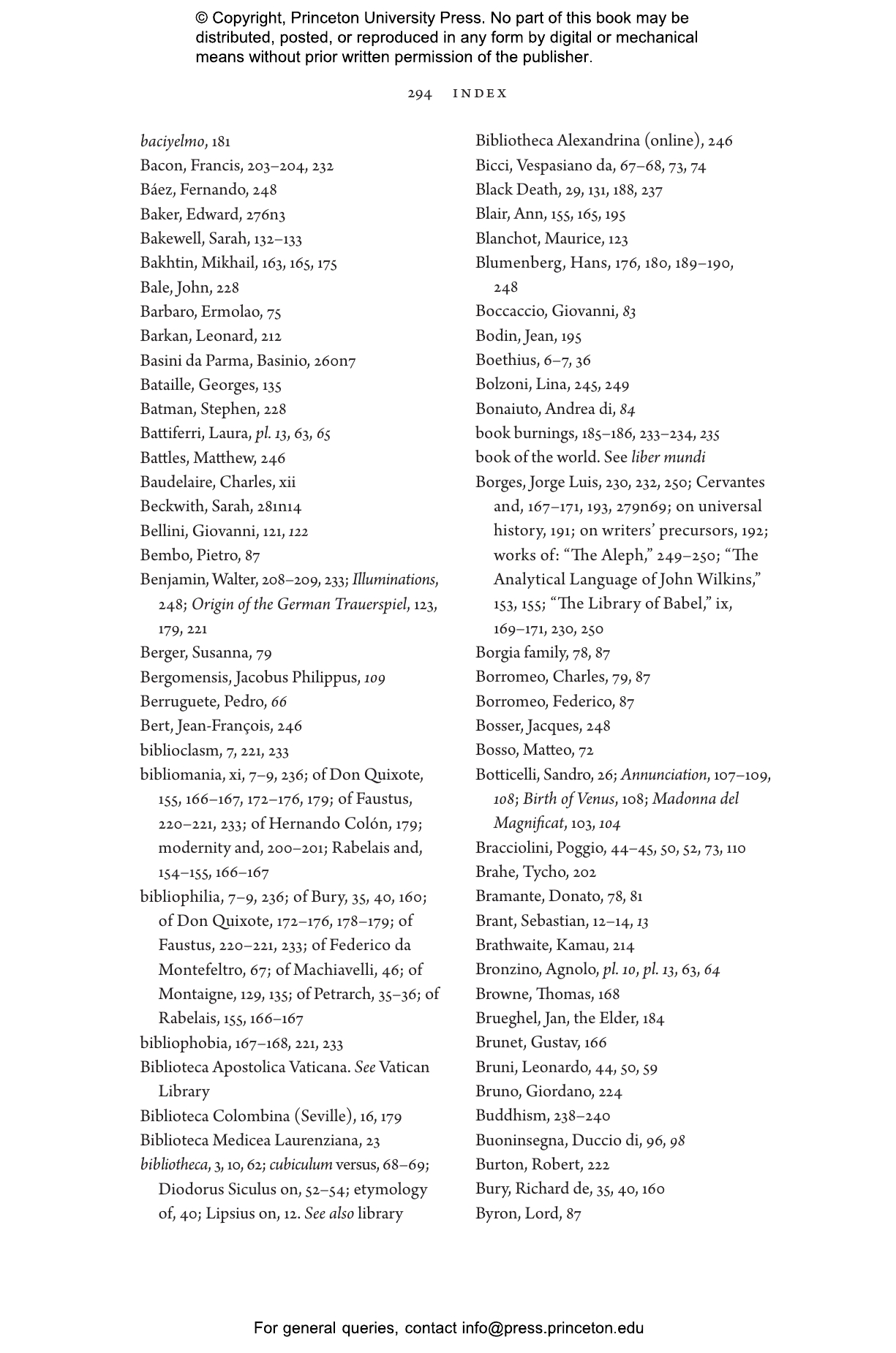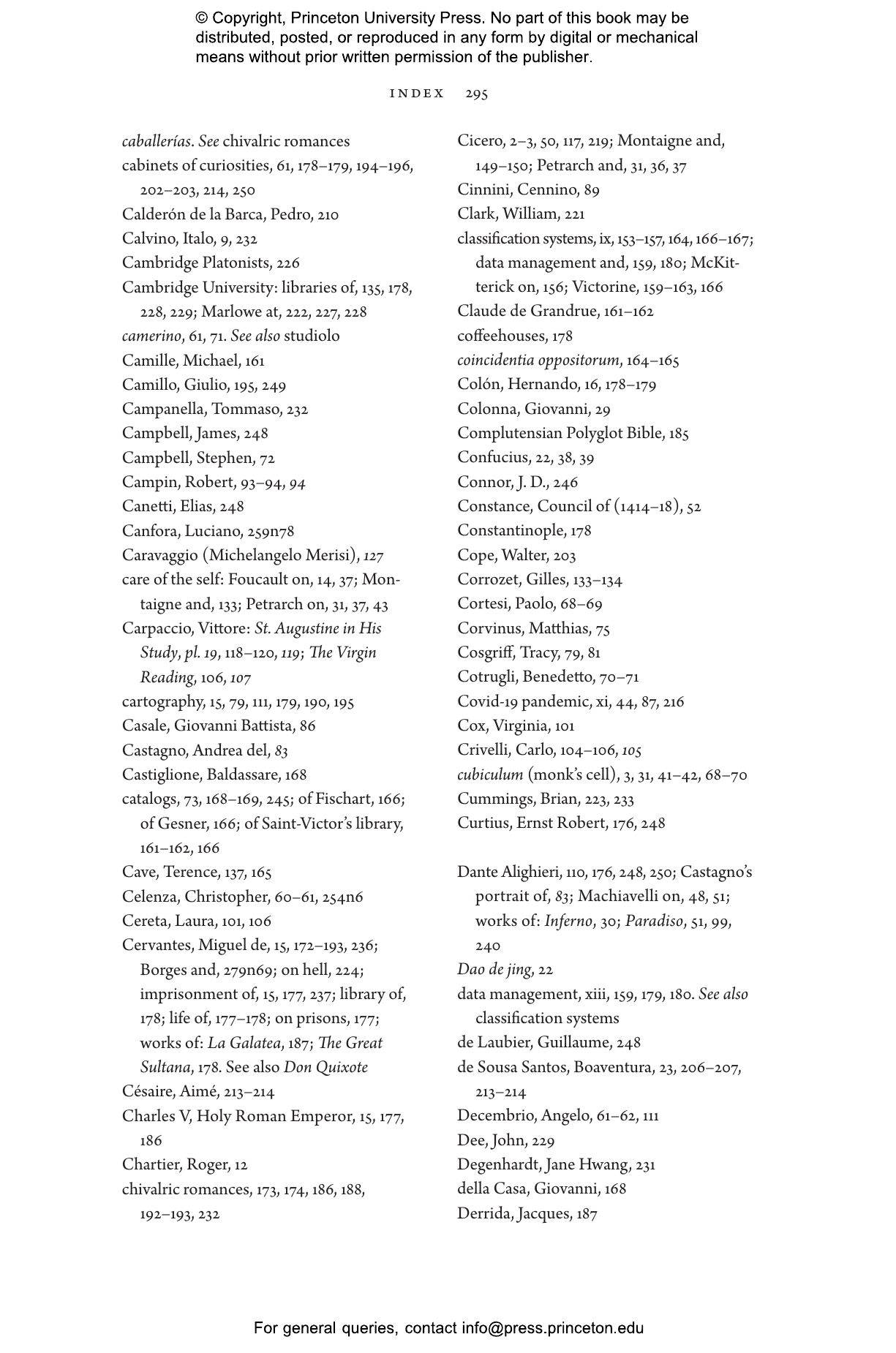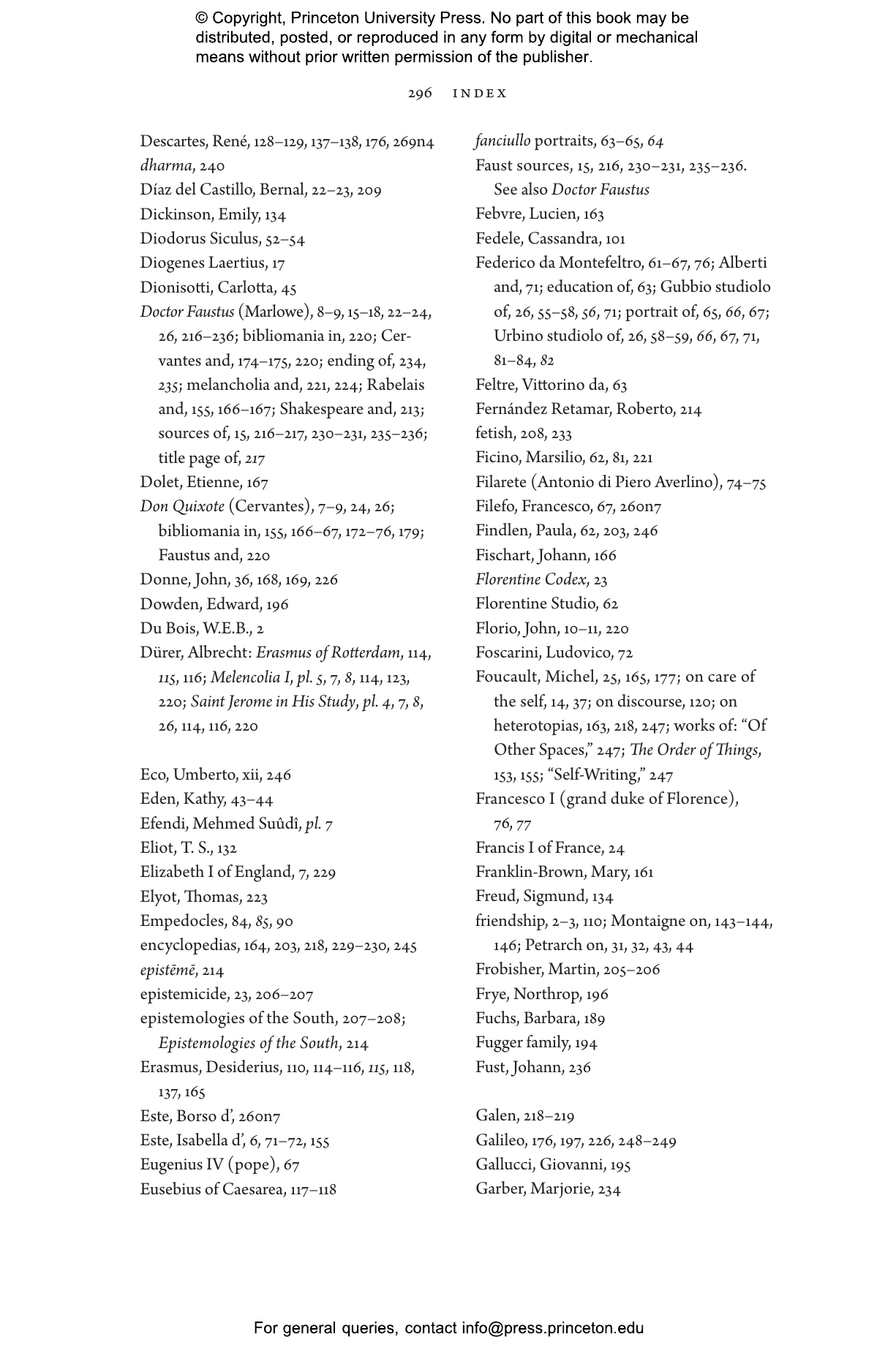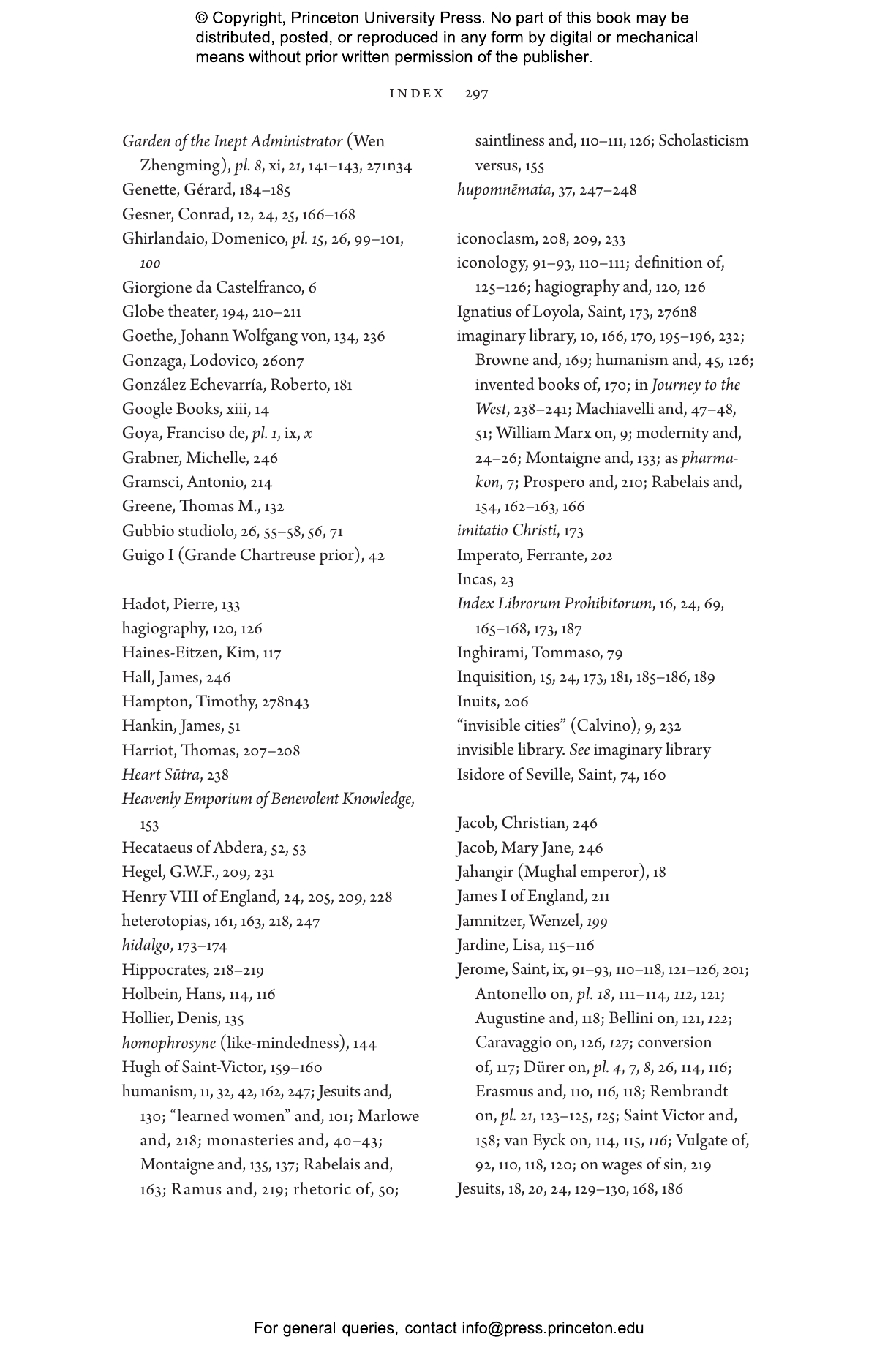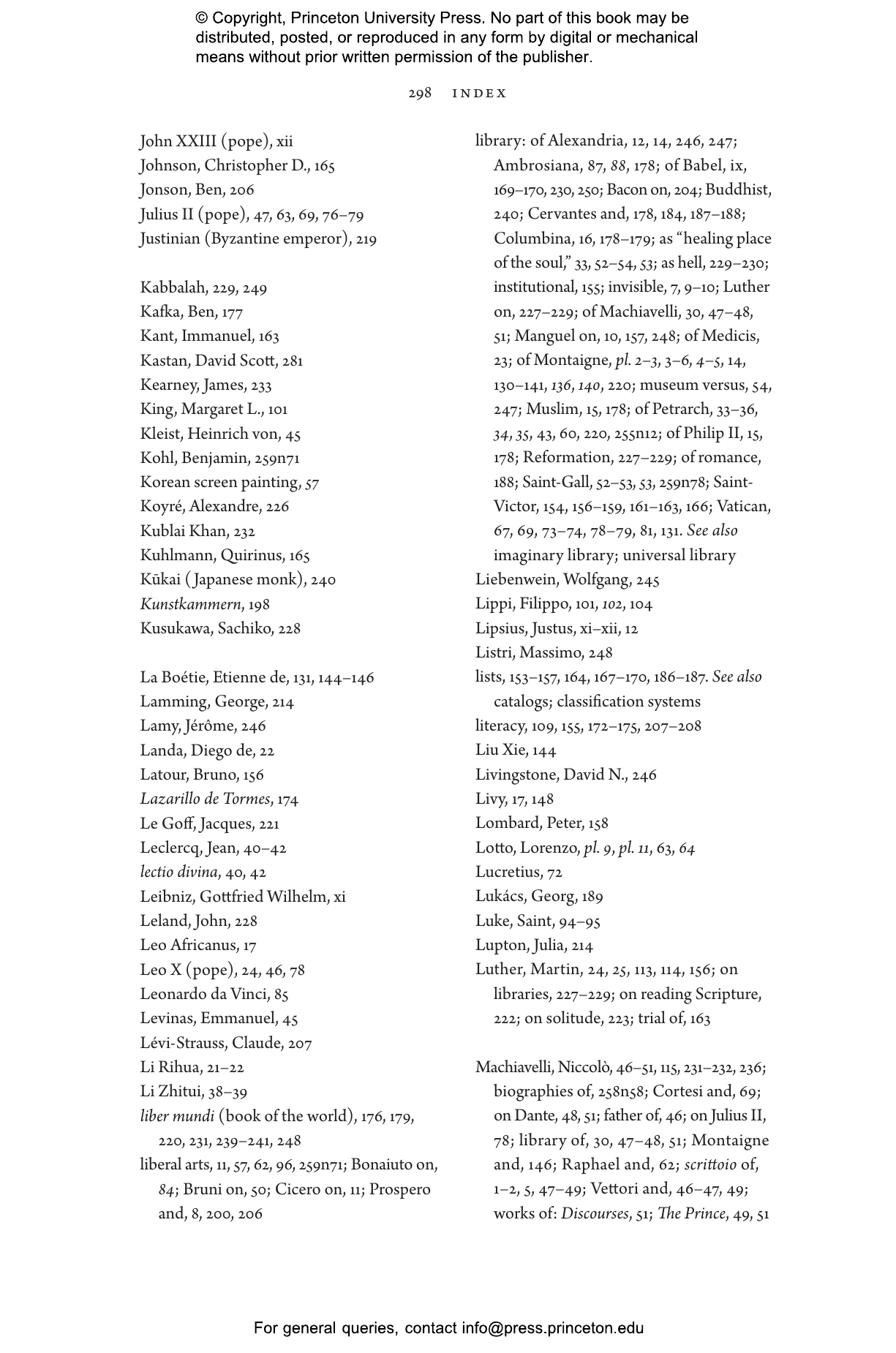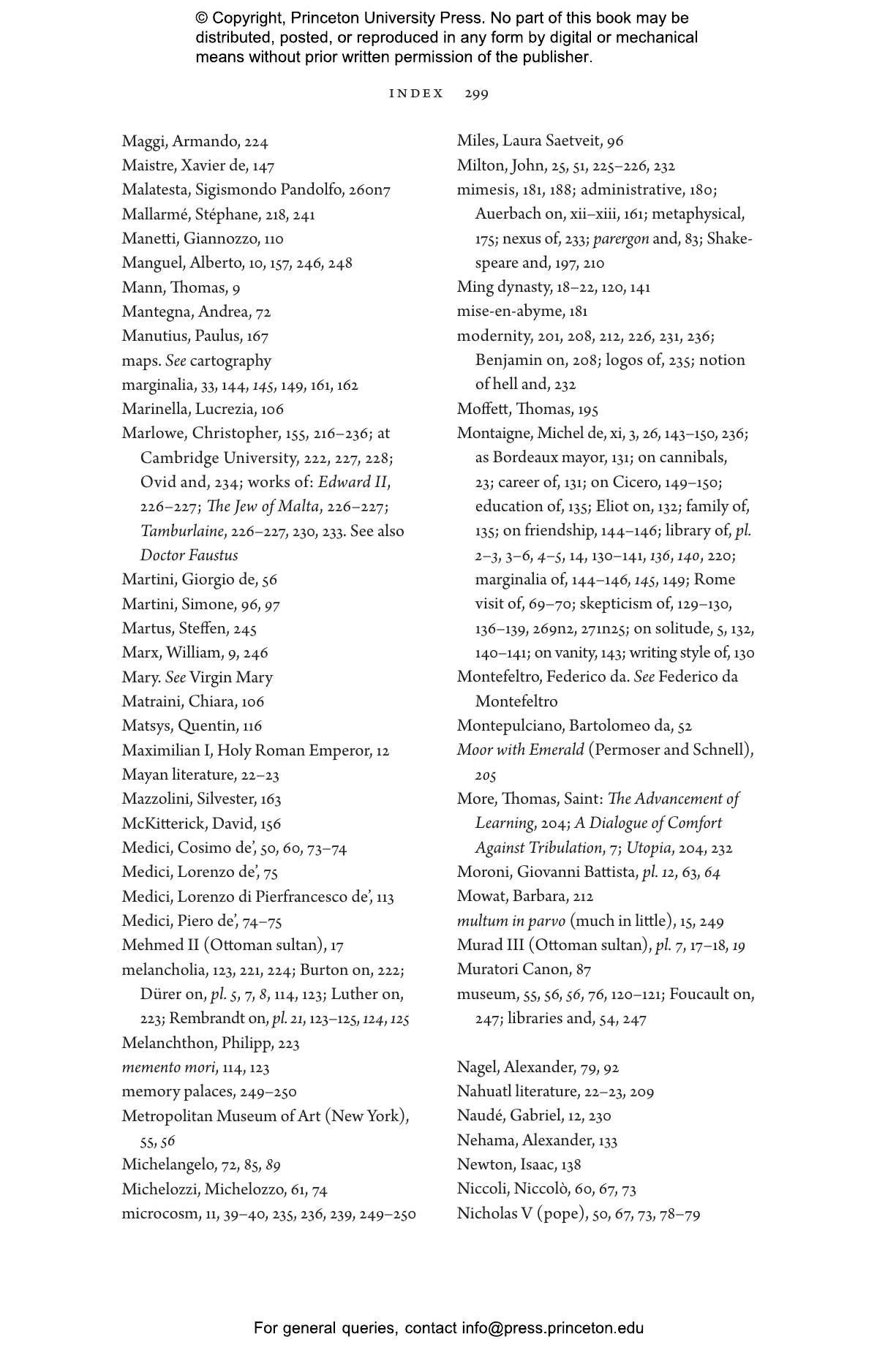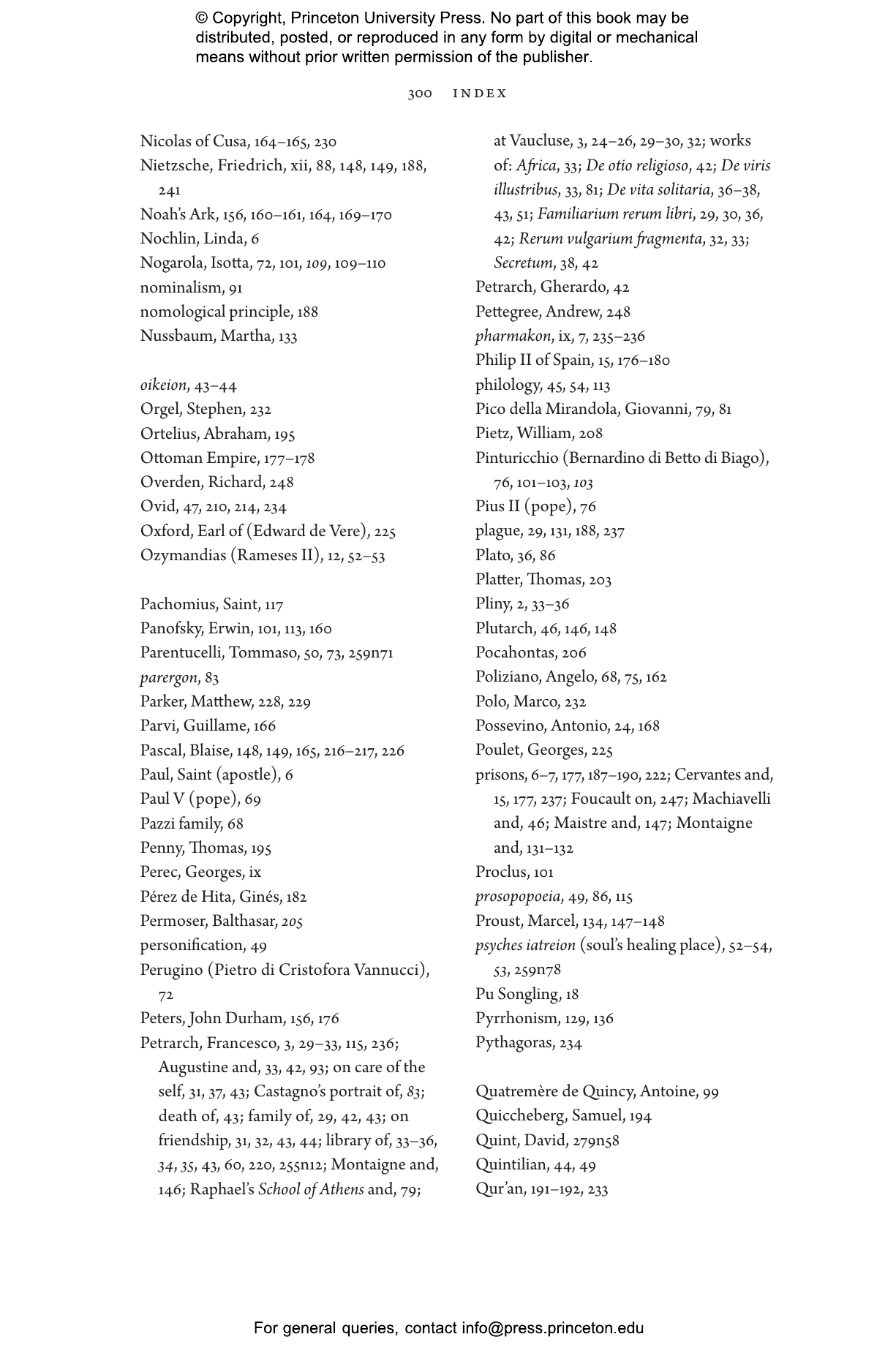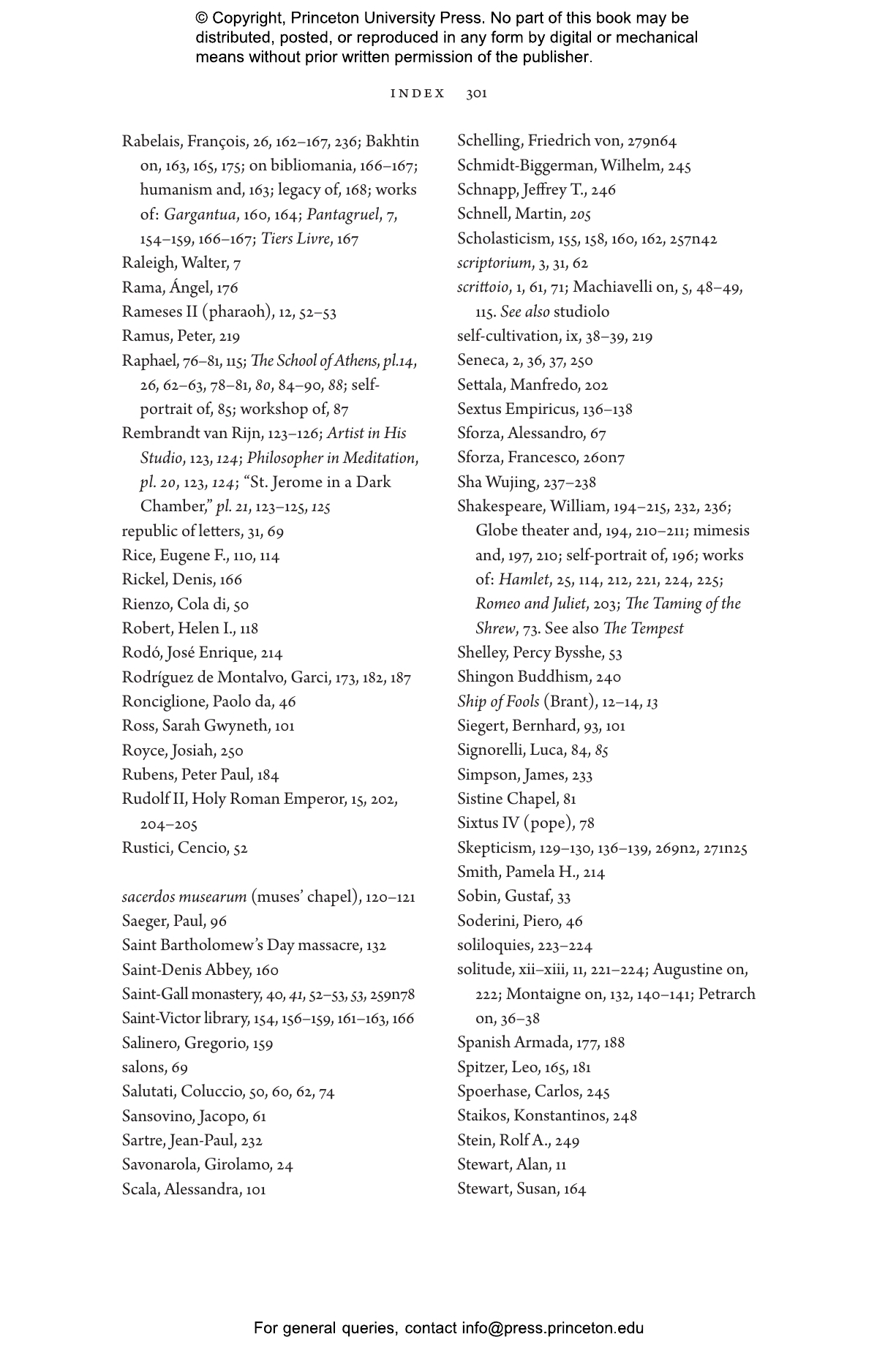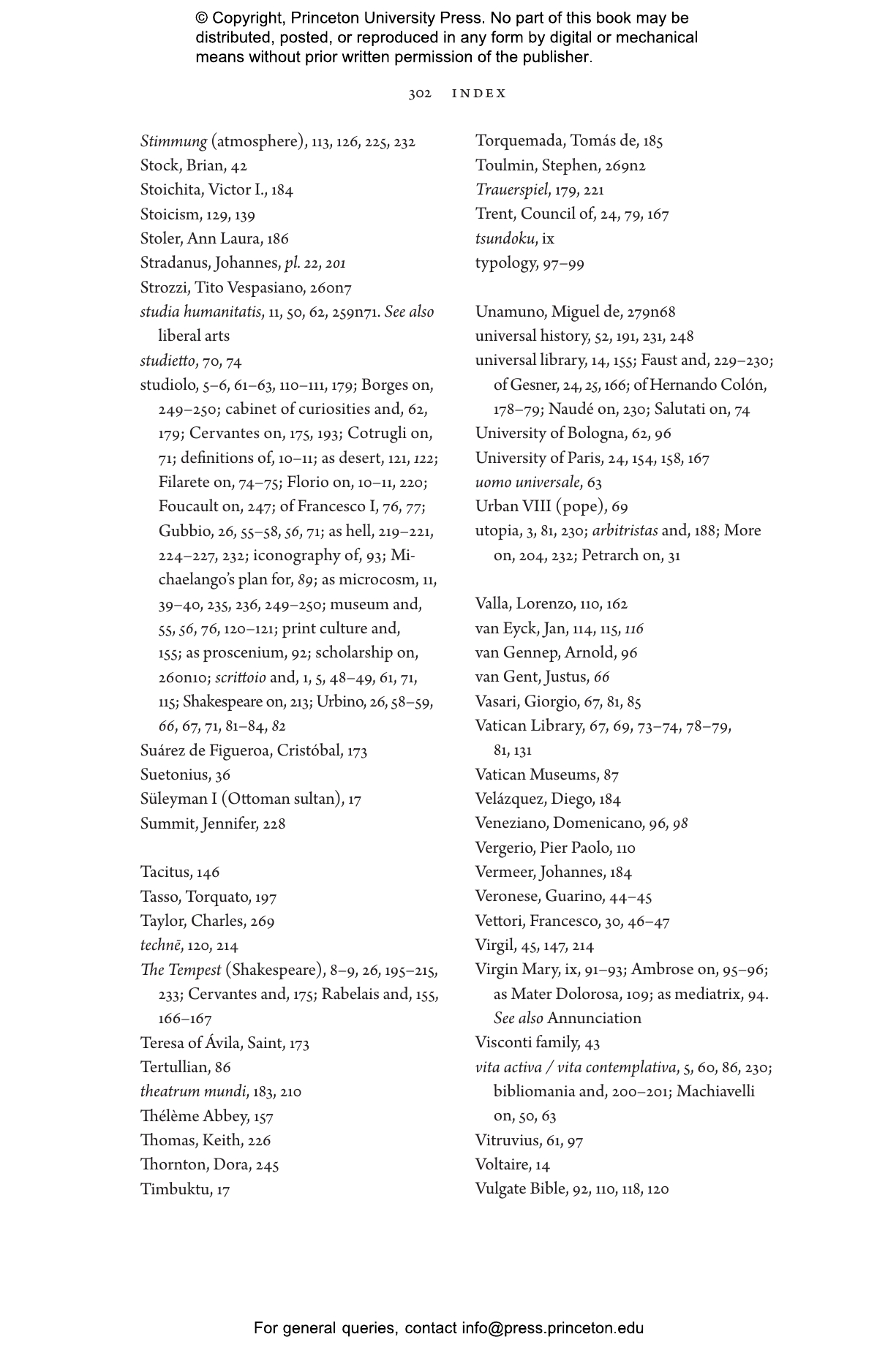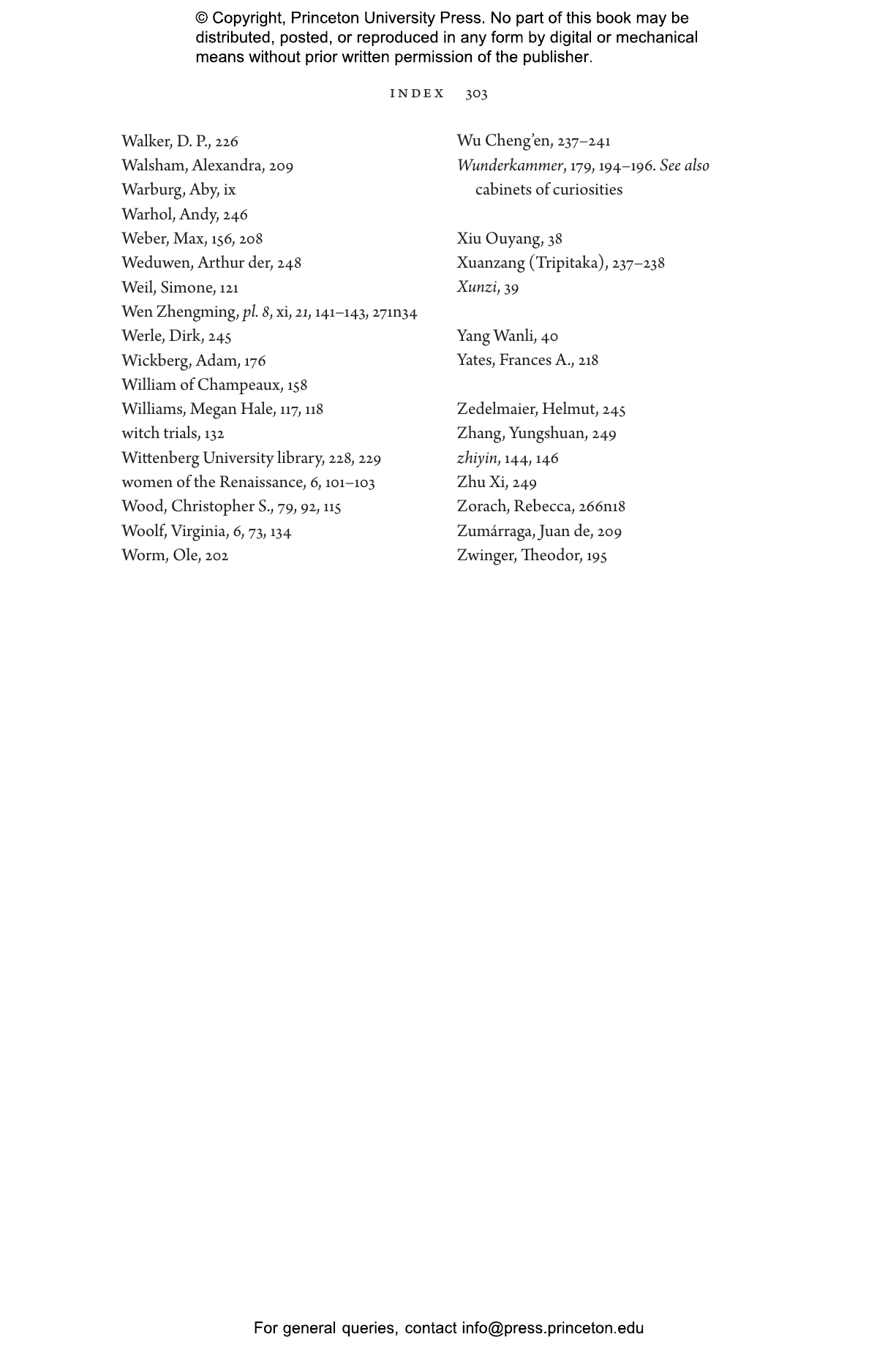With the advent of print in the fifteenth century, Europeâs cultural elite assembled personal libraries as refuges from persecutions and pandemics. Andrew Hui tells the remarkable story of the Renaissance studioloâa âlittle studioââand reveals how these spaces dedicated to self-cultivation became both a remedy and a poison for the soul.
Blending fresh, insightful readings of literary and visual works with engaging accounts of his life as an insatiable bookworm, Hui traces how humanists from Petrarch to Machiavelli to Montaigne created their own intimate studies. He looks at imaginary libraries in Rabelais, Cervantes, Shakespeare, and Marlowe, and discusses how Renaissance painters depicted the Virgin Mary and St. Jerome as saintly bibliophiles. Yet writers of the period also saw a dark side to solitary reading. It drove Don Quixote to madness, Prospero to exile, and Faustus to perdition. Hui draws parallels with our own age of information surplus and charts the studioloâs influence on bibliographic fabulists like Jorge Luis Borges and Umberto Eco.
Beautifully illustrated, The Study is at once a celebration of bibliophilia and a critique of bibliomania. Incorporating perspectives on Islamic, Mughal, and Chinese book cultures, it offers a timely and eloquent meditation on the ways we read and misread today.
"[A] stimulating history. . . . Hui makes a convincing case that personal libraries were intimately bound up with Renaissance conceptions of selfhood. Bibliophiles will find much to ponder."âPublishers Weekly
"Impressively erudite, Hui has produced a substantial piece of scholarship. No avid and self-respecting bibliophile should be without this book set snugly on one of their study’s many shelves."âKirkus Reviews, starred review
"[A] delightful, wide-ranging work."âMichael OâDonnell, Wall Street Journal
"This is undoubtedly a first class piece of academic research and it is. . .an emotional read – rather like reading about distant family or ancestors."âTerry Potter, The Letterpress Project
"Hui’s prose is elegant and deliberately styled, melding personal discourse with a considered aesthetic."âEd Bedford, The Indiependent
"[A] fascinating investigation into personal spaces and libraries of the Renaissance. . . . All book and library-loving readers will find passages of interest."âChoice Reviews
"Brilliant. . . . A delightful read that invokes feelings of escapism and intrigue, The Study is a book about bibliophiles for bibliophiles."âAll About History
"An exquisite venture into the world of books — not merely as objects of knowledge, but as intimate companions in the intellectual lives of their owners. . . Deeply thoughtful and evocative."âCassandra Fong, Redbrick
"Hui’s book is all the richer for its insistence on taking the reader, like a modern Mephistopheles, across the world."âAnthony Grafton, London Review of Books
“With learning and grace, Andrew Hui conducts readers on a virtual tour of sites of reading, from St. Jerome’s wilderness retreat to the sumptuous libraries of Renaissance princes, from Montaigne’s tower to Prospero’s island. Spanning many centuries and cultures, this book about the real and imagined places of splendid scholarly solitude will delight all who love books and who long for a room of their own in which to read them.”—Lorraine Daston, author of Rules: A Short History of What We Live By
“This marvel of a book virtuosically interweaves text and images to tell the story of a magical, mysterious place: the studiolo. From Petrarch to Montaigne, and through to the great mythical figures of Don Quixote, Faust, and Prospero, Andrew Hui recreates the entire universe of humanism and the Renaissance before our eyes with vertiginous erudition. Imbued with verve, humor, and sensitivity, The Study is worthy of a place in every library.”—William Marx, Collège de France
“Whether Hui is taking us to the Ambrosiana in Milan or reading Cervantes in Singapore, his voice shines through in this learned and luminous book about books. At once playful and direct, erudite and curious, this monumental work of scholarship is also a gift of friendship.”—Julia Reinhard Lupton, author of Shakespeare Dwelling: Designs for the Theater of Life
“Andrew Hui has given us a jewel of a book that traces our timeless bond with that magical space that mirrors both the reader and the stormy world beyond the page.”—Alberto Manguel, author of A History of Reading


